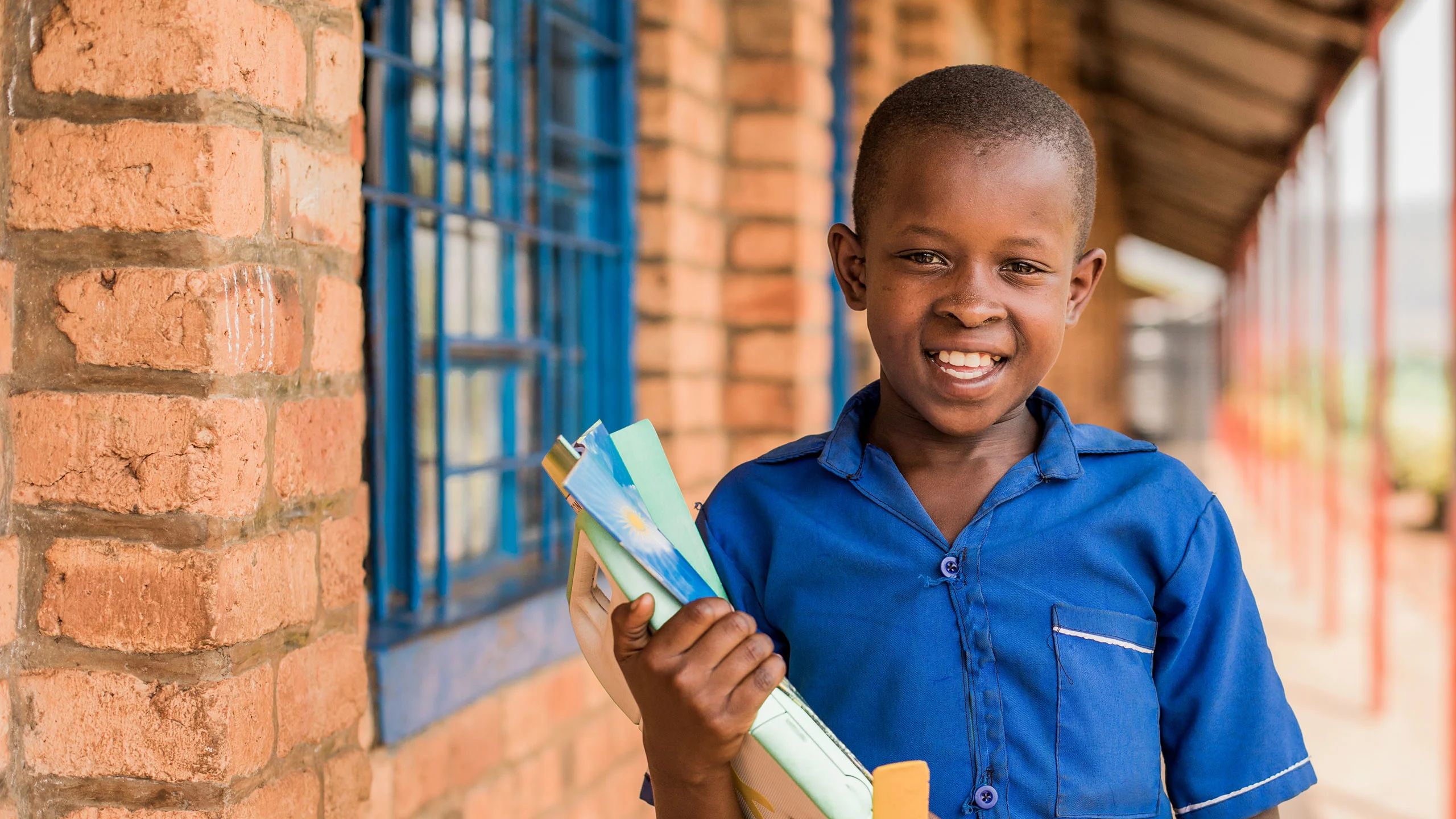2022

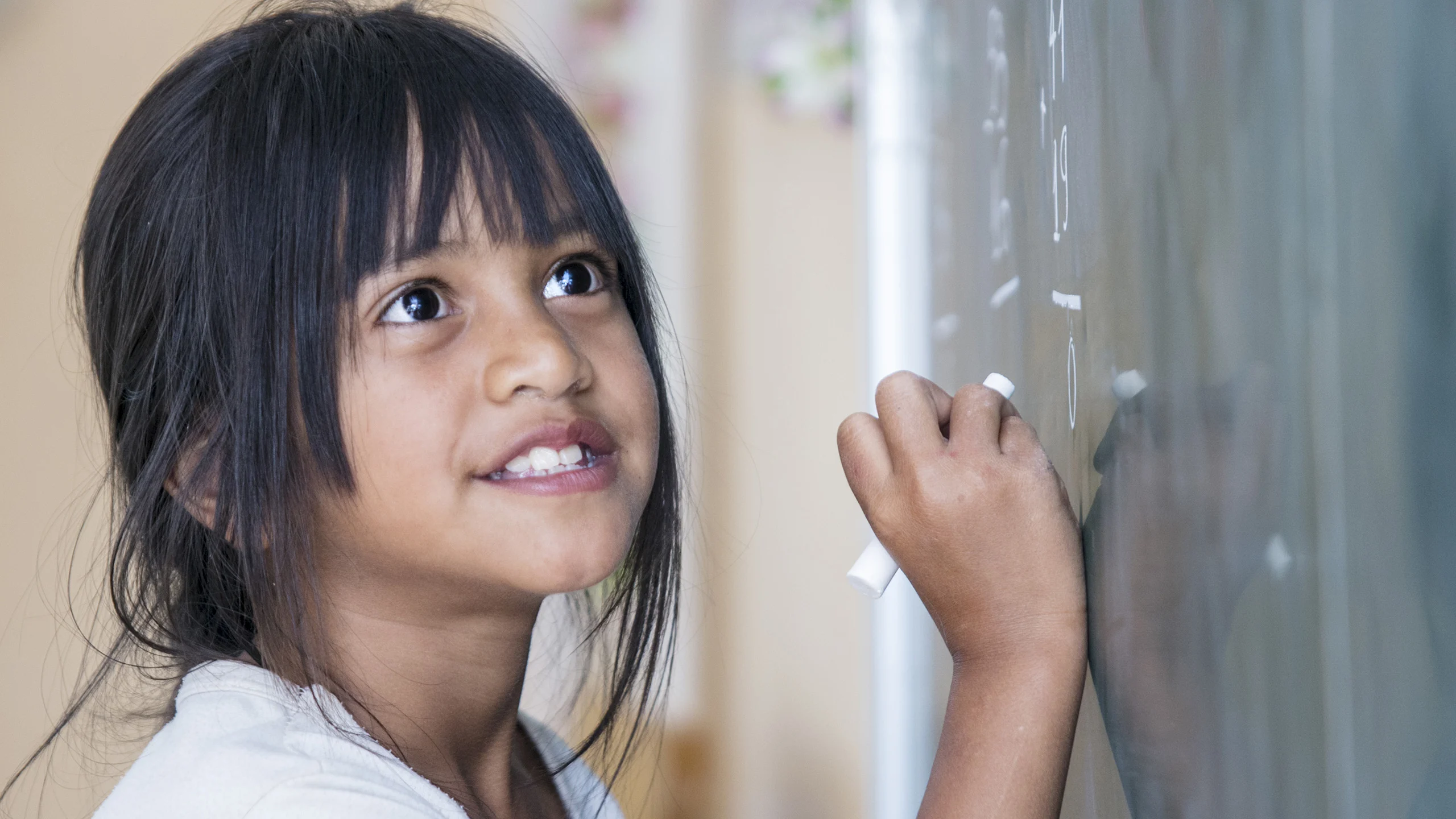
Plan International Australia acknowledges and pays respect to Elders past and present of this nation. We recognise sovereignty was never ceded and that this land always was and always will be First Nations land. We recognise their ongoing connection to land, waters and community, and we commit to ongoing learning, deep and active listening, and taking action in solidarity.
why plan international exists
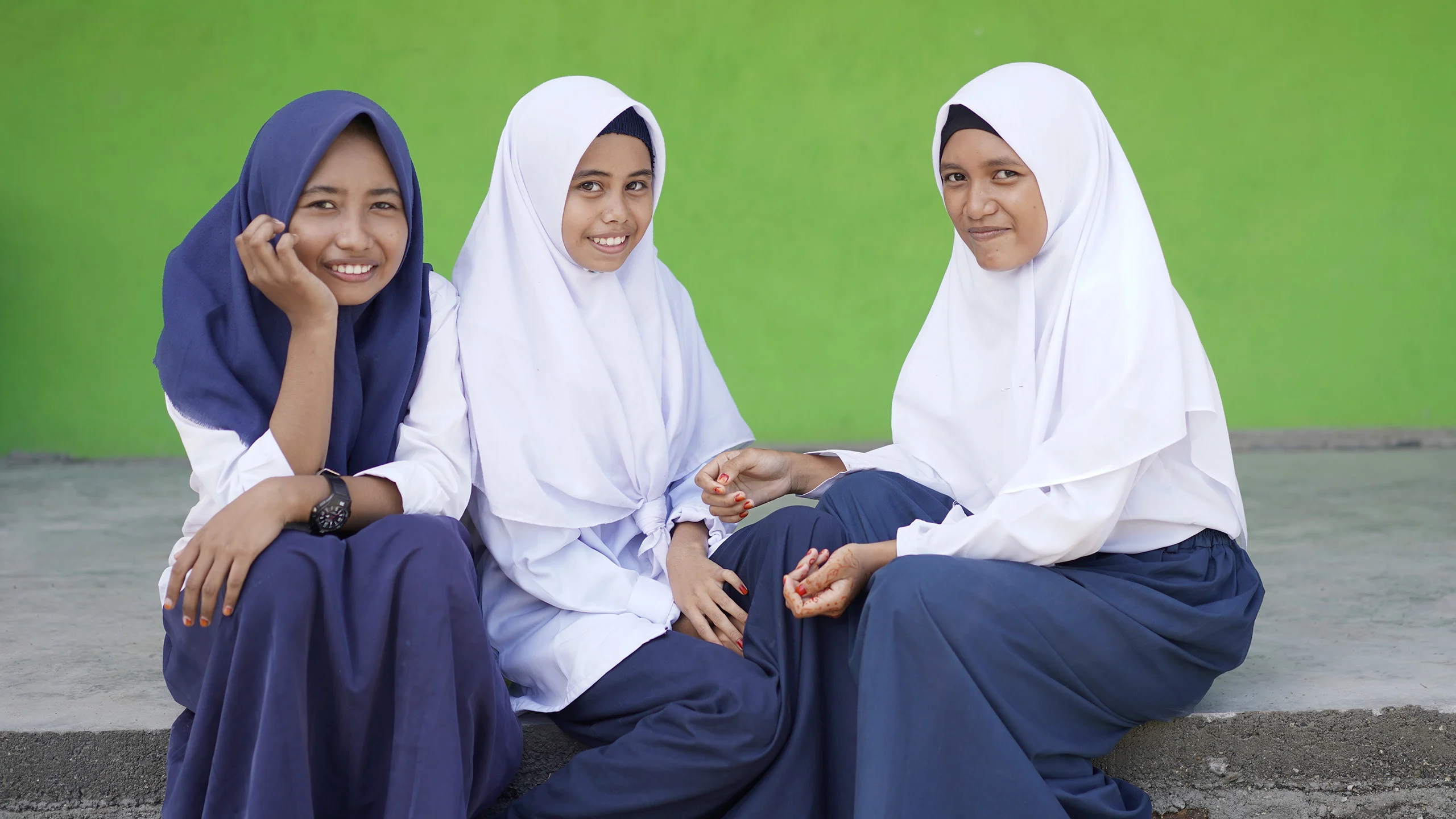
130M girls
More than 130 million girls around the globe are not in school.
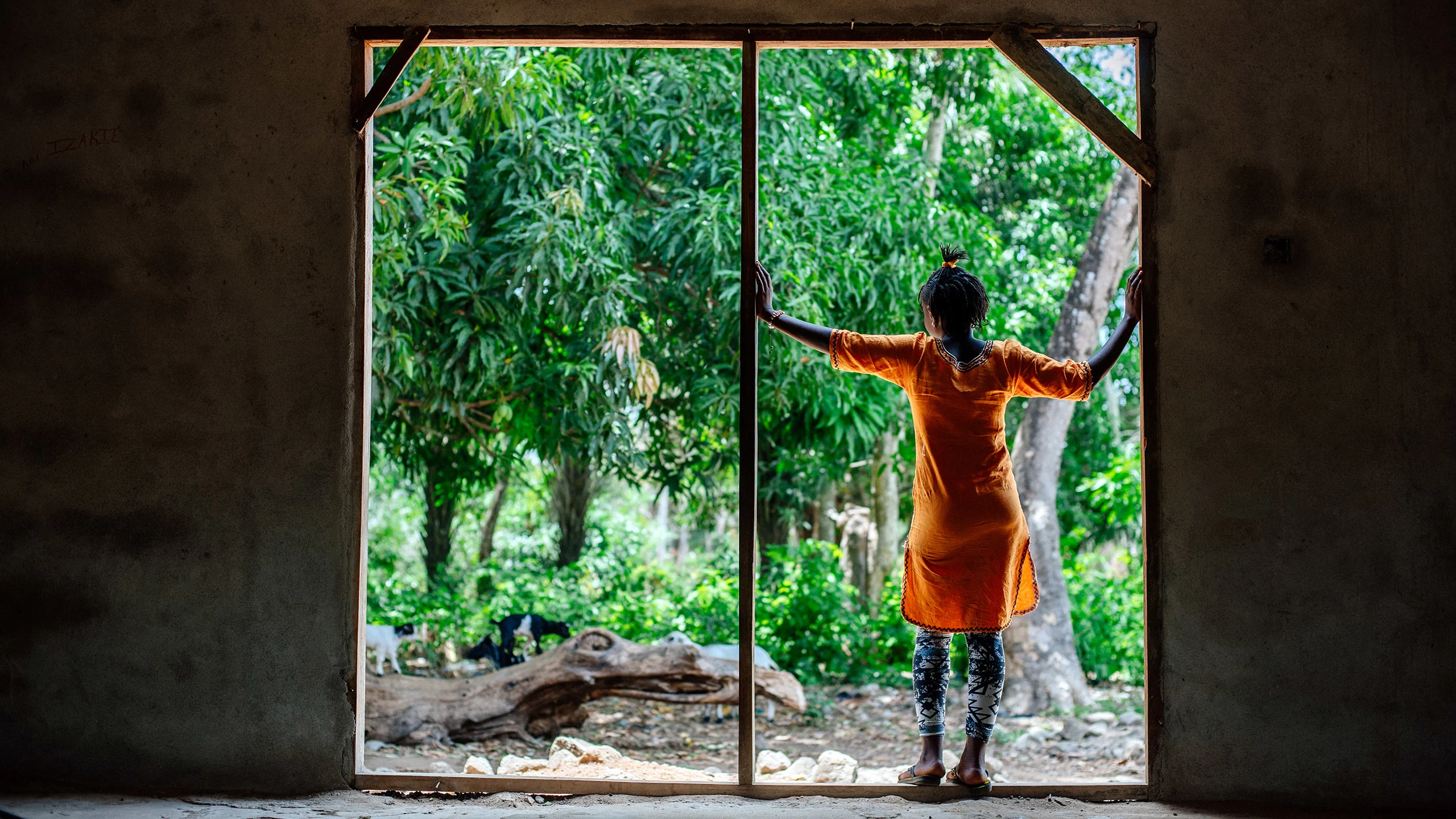
every 10 minutes
Every 10 minutes, one adolescent girl dies as a result of violence.
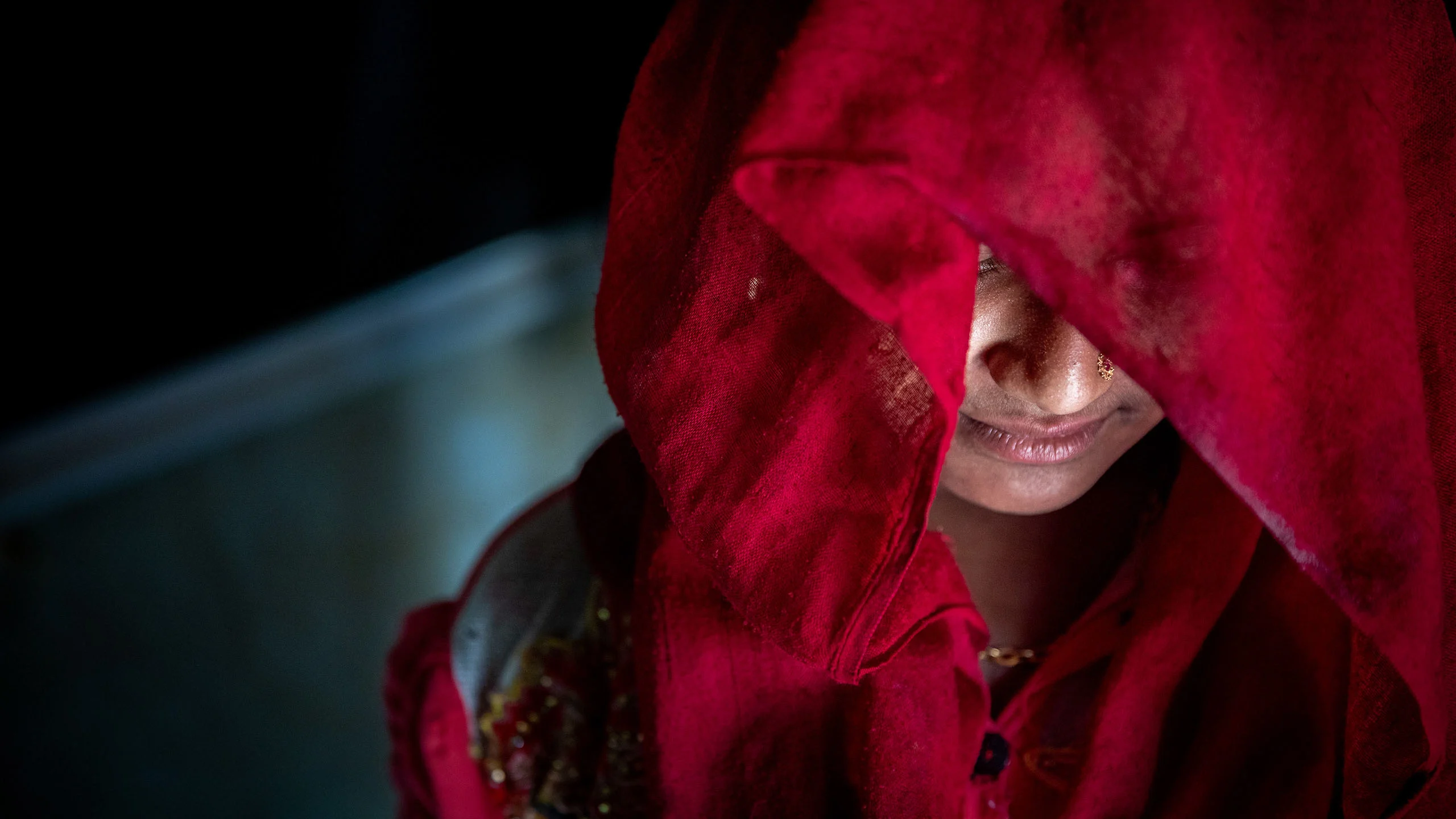
12m girls
12 million girls are forced to marry as children every year.
Right now, there are more than half a billion adolescent girls living on our planet and all of them, at some point in their lives, will be disproportionately affected by gender inequality. Inequality knows no borders, and isn’t restricted to any one community, culture or continent. Half the world’s population is being held back by inequality. That’s why we’re working to fight gender inequality around the world. Because a better now for her, means a better future for everyone.
how we create impact
At Plan International Australia we seek to ensure vulnerable and excluded children and young people are safe, more resilient and enjoy greater realisation of their rights. We do this by working with a range of stakeholders to promote positive attitudes, behaviour and practices and improve access to resources, services and support. We implement a rigorous framework to maintain the quality of our programs, based on a theory of change with clear outcomes and measurements, and evidence of the program’s impact.
our theory of change
Together with partners, we work for lasting impact on norms, attitudes and behaviours, social and economic resources and safety nets, and policy frameworks and budgets. We do this at individual, family, community, national and global levels to support empowerment of children, young people and communities.
from the ceo
View or download our full 2022 Annual Impact Report
Our focus on girls’ rights can be crystallised into four priority domains, where we support girls in their communities to
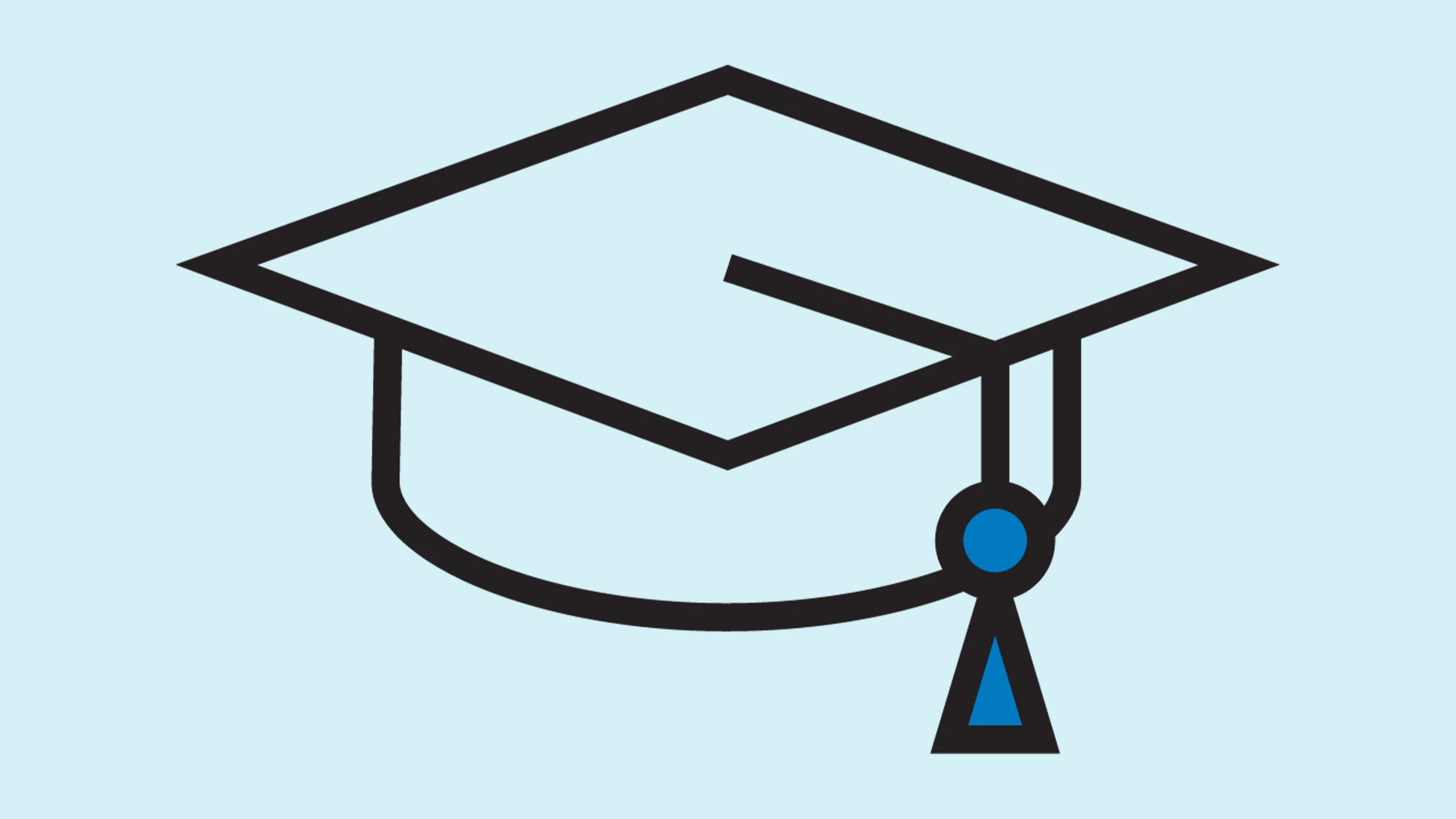
learn
Have access to education and the skills for work and life.
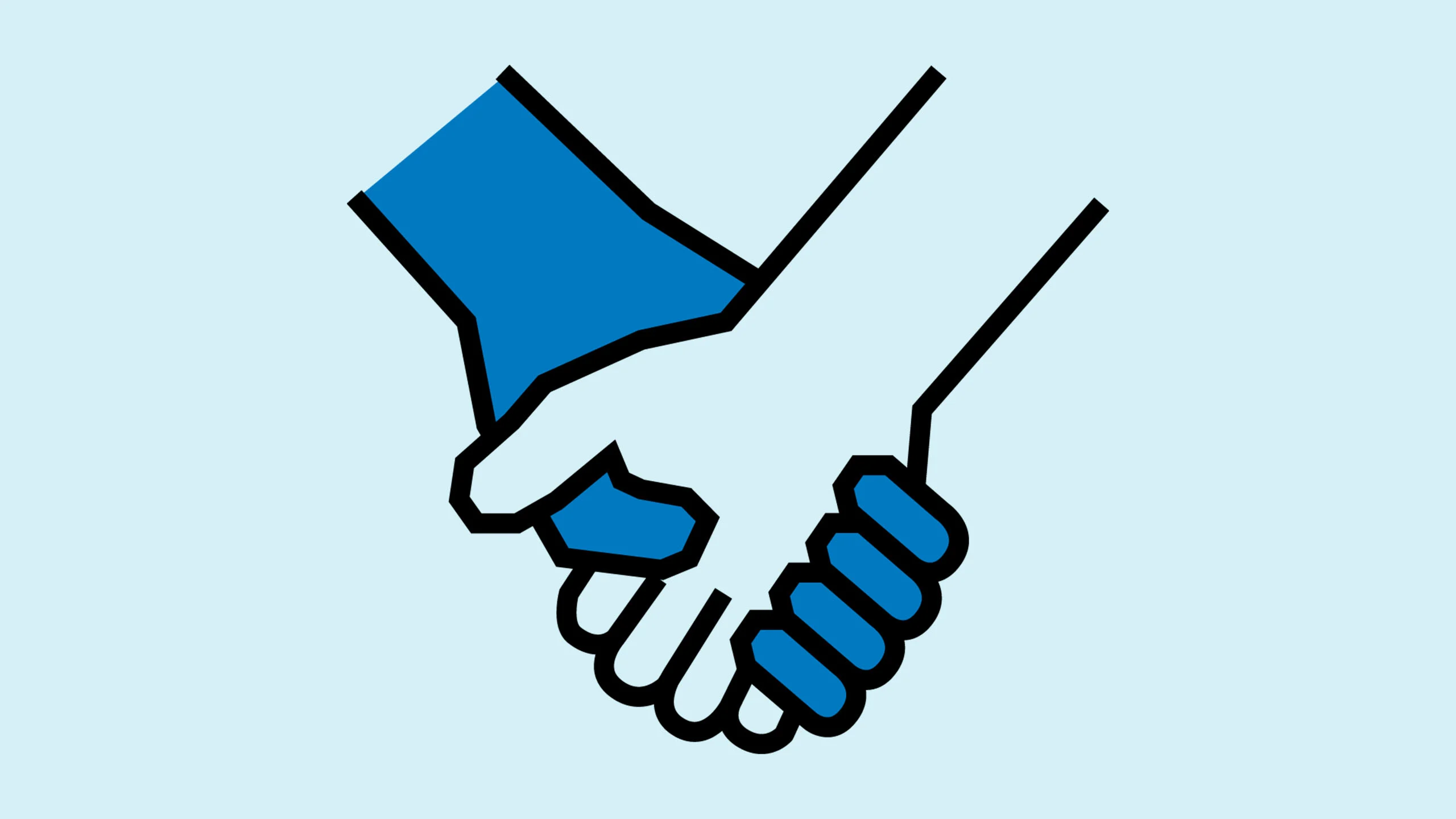
lead
Take action on issues that matter to them.

decide
Have control over their lives and bodies.
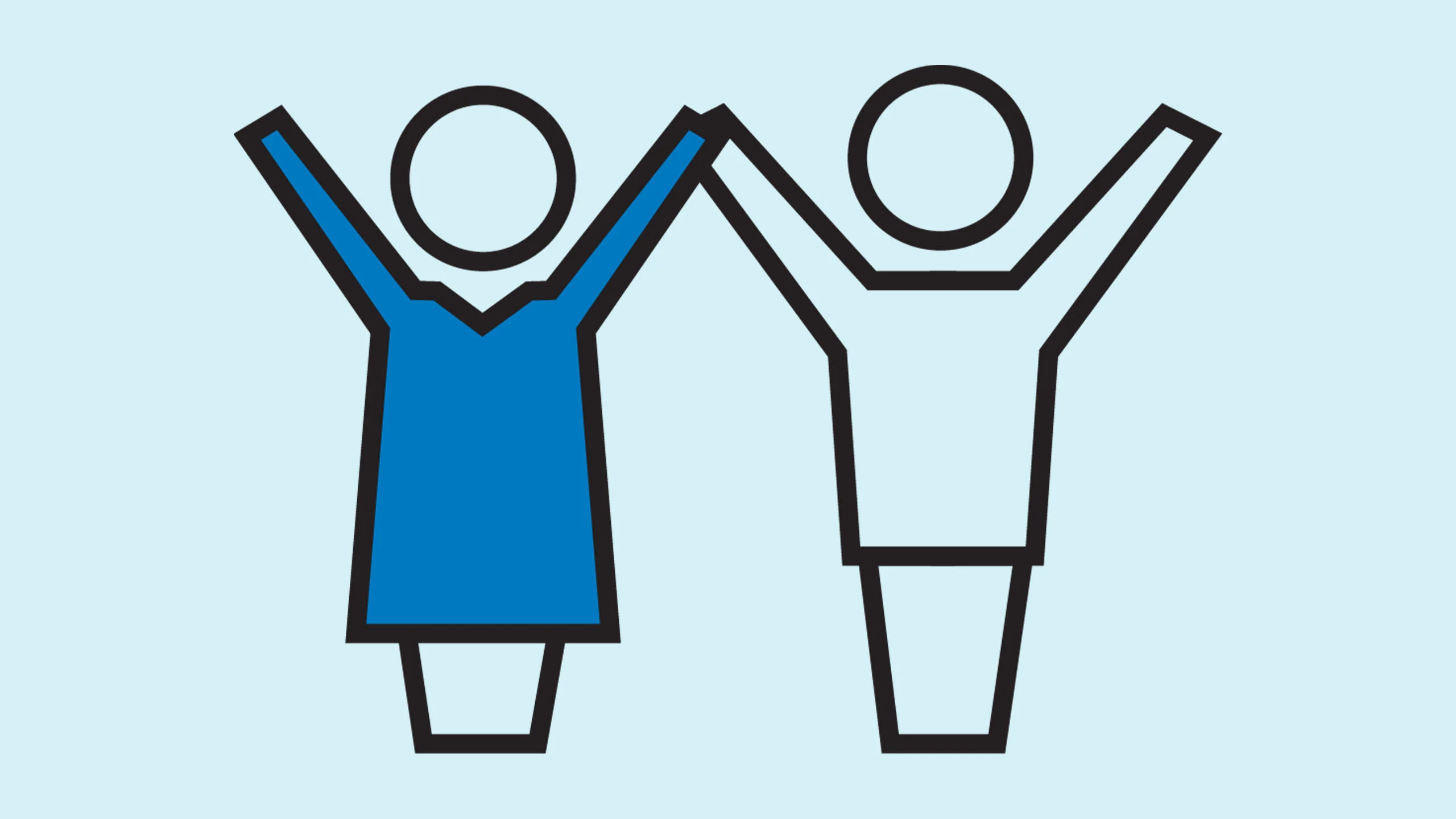
thrive
Grow up cared for and free from violence and fear.
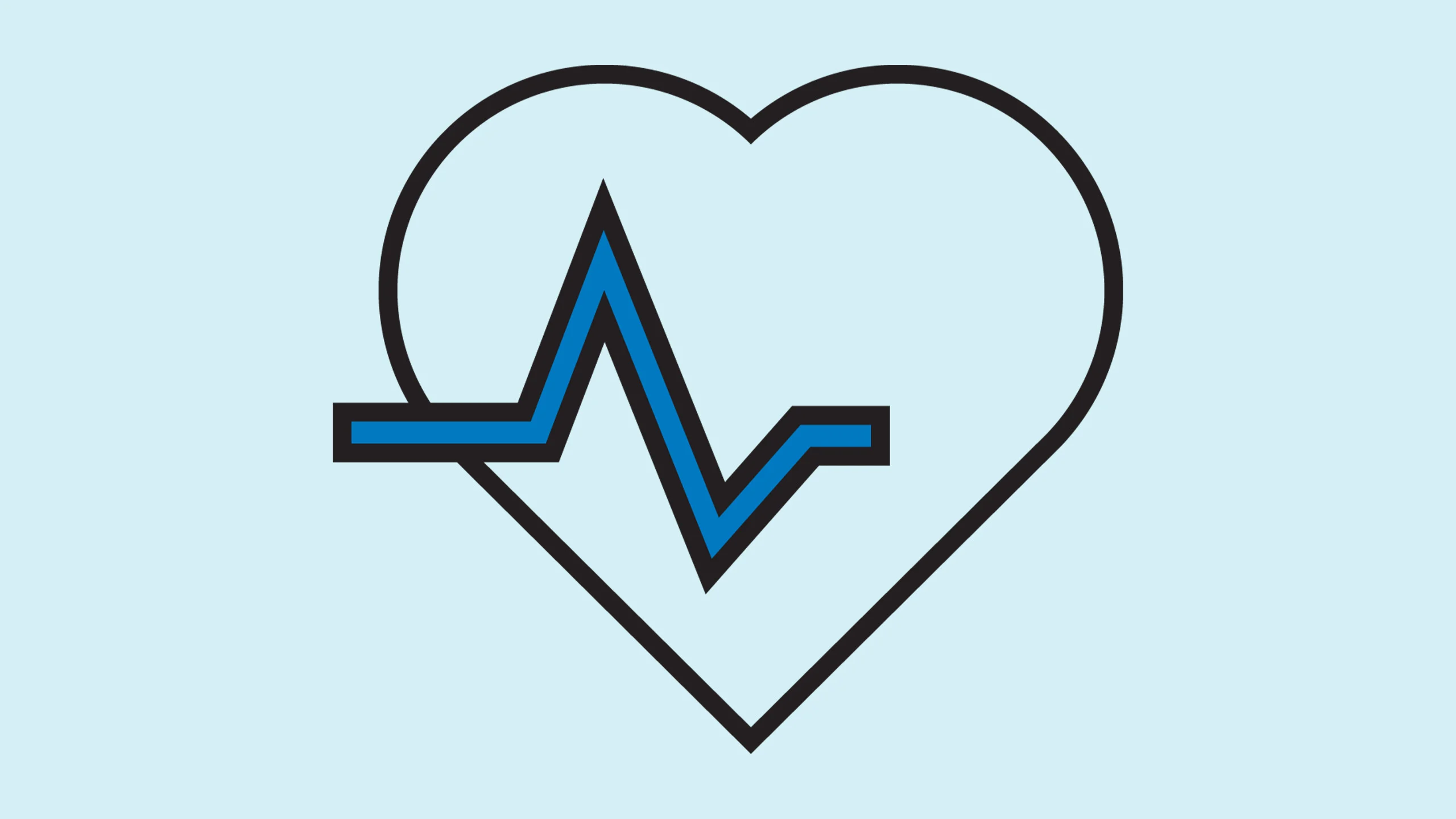
Our goal is to become the world's leading international NGO for girls in humanitarian crises, and this has resulted in a fifth priority area.
survive
Increase the impact of our humanitarian work for children, particularly girls, by adapting our focus where the need is greatest.

Our ‘Survive’ programs aim to ensure children and young people grow up in resilient communities and realise their rights to live with dignity and protection, before, during, and after disasters and conflicts. These programs include Food and Livelihoods Security, Climate Change Adaptation and Disaster Risk Management.
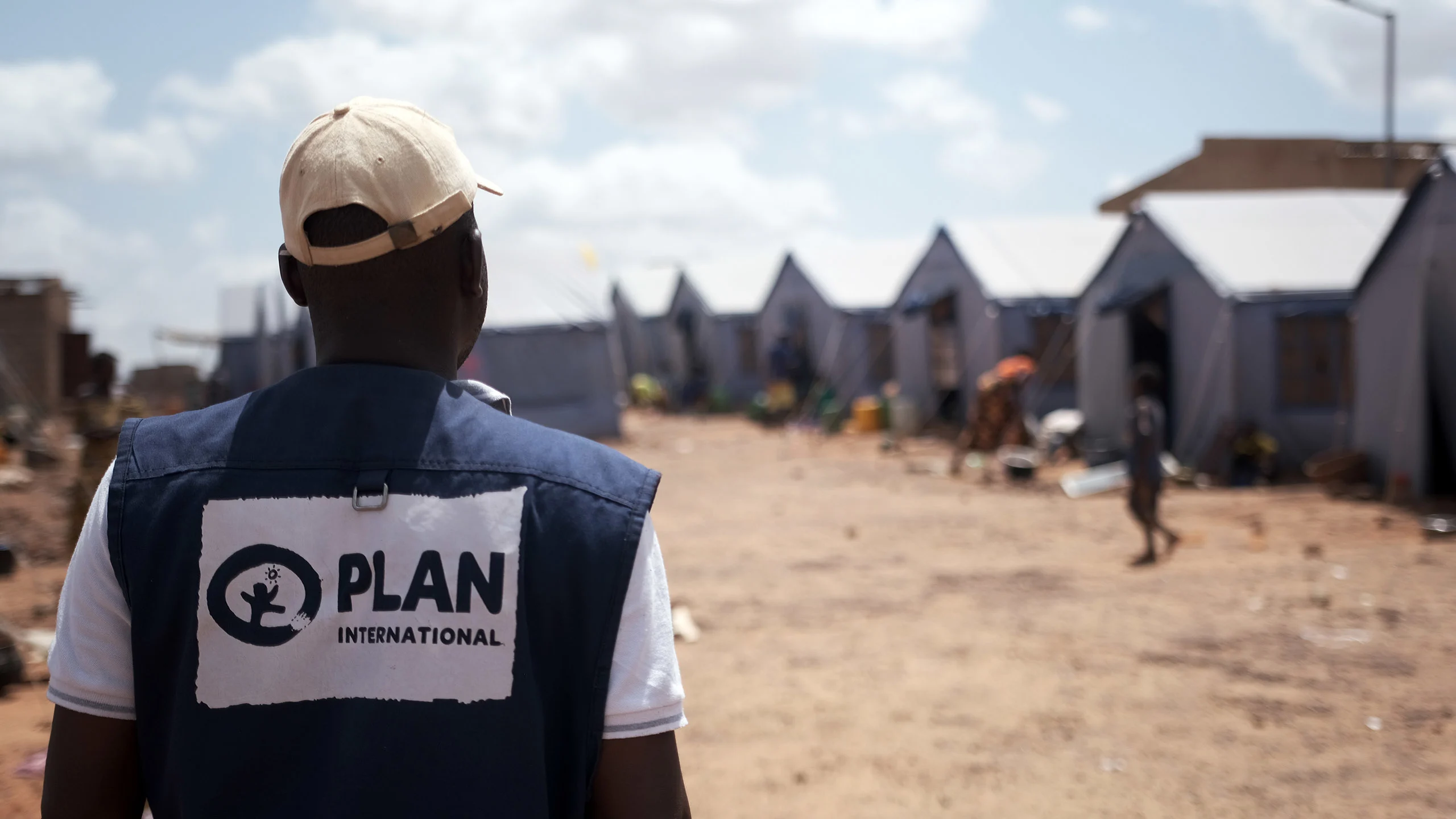
In FY22 we achieved the following impact through these programs
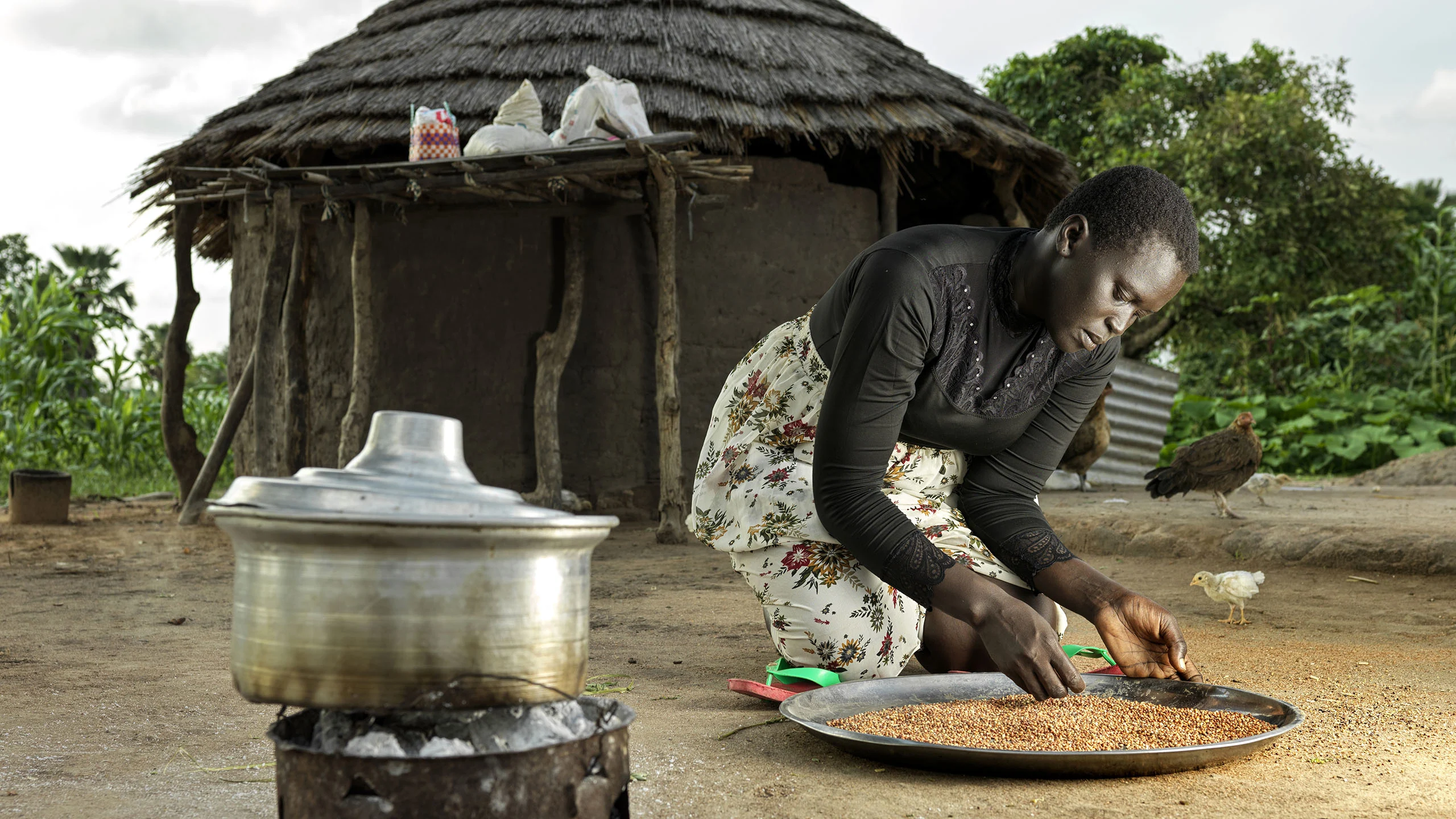
Reached 280,000+ people
with food and nutrition support in South Sudan, one of the countries hardest hit by the hunger crisis in the horn of Africa.
over 50,000
people in Zimbabwe provided with cash and voucher assistance, supporting them in the face of the hunger crisis. This gave women greater control of shared resources, enabled them to cover their basic food needs and reduced the use of negative coping strategies (such as sexual exploitation in exchange for food).
Reached 1,431,700 people with our digital campaign
to raise awareness about COVID-19 preparedness and and prevention in Papua New Guinea (PNG), and successfully replicated the campaign in Solomon Islands (reaching 264,768 people) and in Vanuatu (reaching 150,197 people so far).
858,811 people facing food insecurity
supported in agricultural and urban settings in South Sudan, Myanmar, Cambodia, Sudan, Zimbabwe and Laos, through 15+ projects in partnership with the World Food Programme.
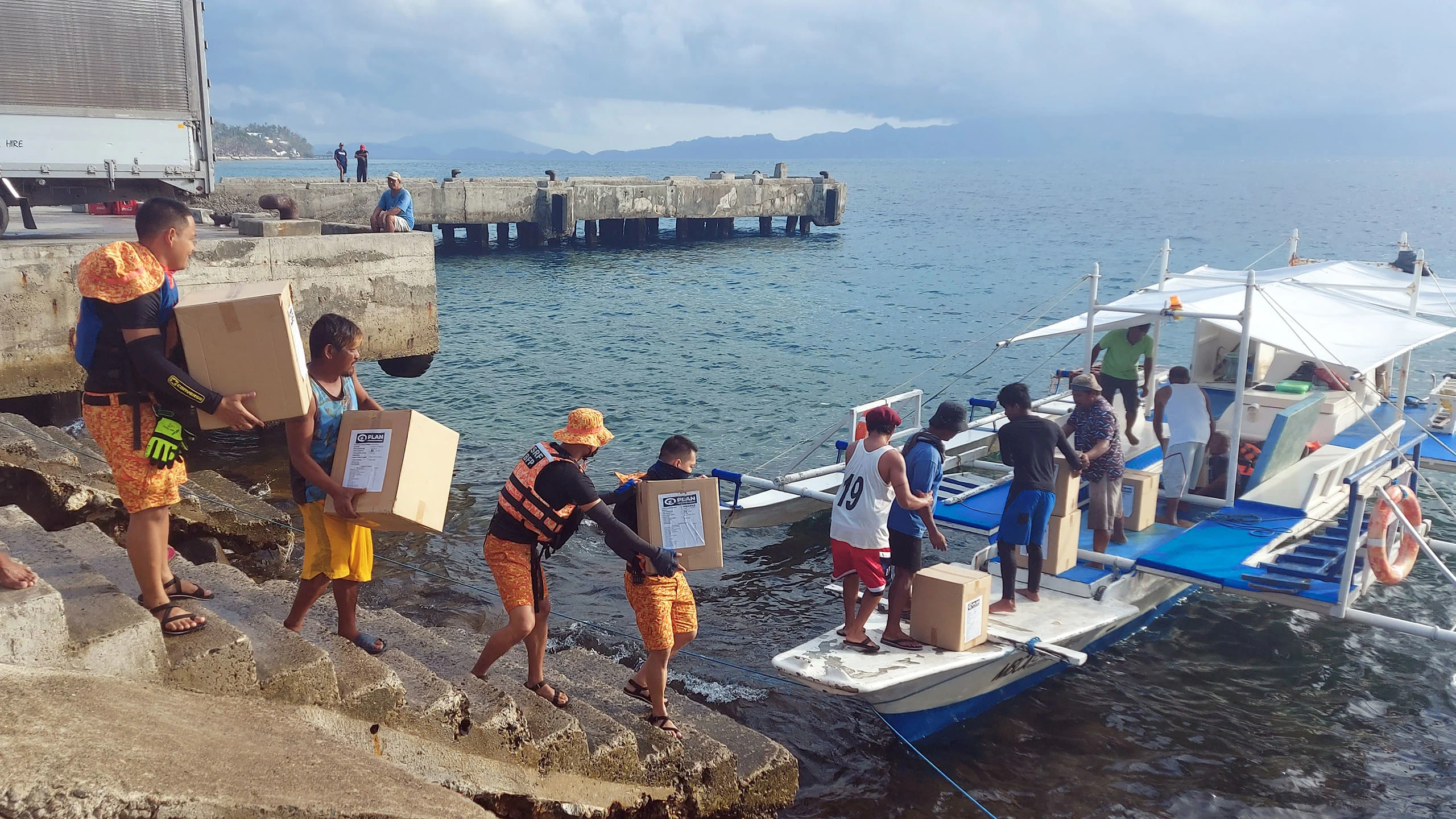
Responded to disasters and emergencies
with teams providing emergency assistance following Typhoon Rai in Philippines, flash floods in Timor Leste, Tropical Cyclone Yasa in Fiji, the volcanic eruption and tsunami in Tonga, and La Niña induced drought in Kiribati.
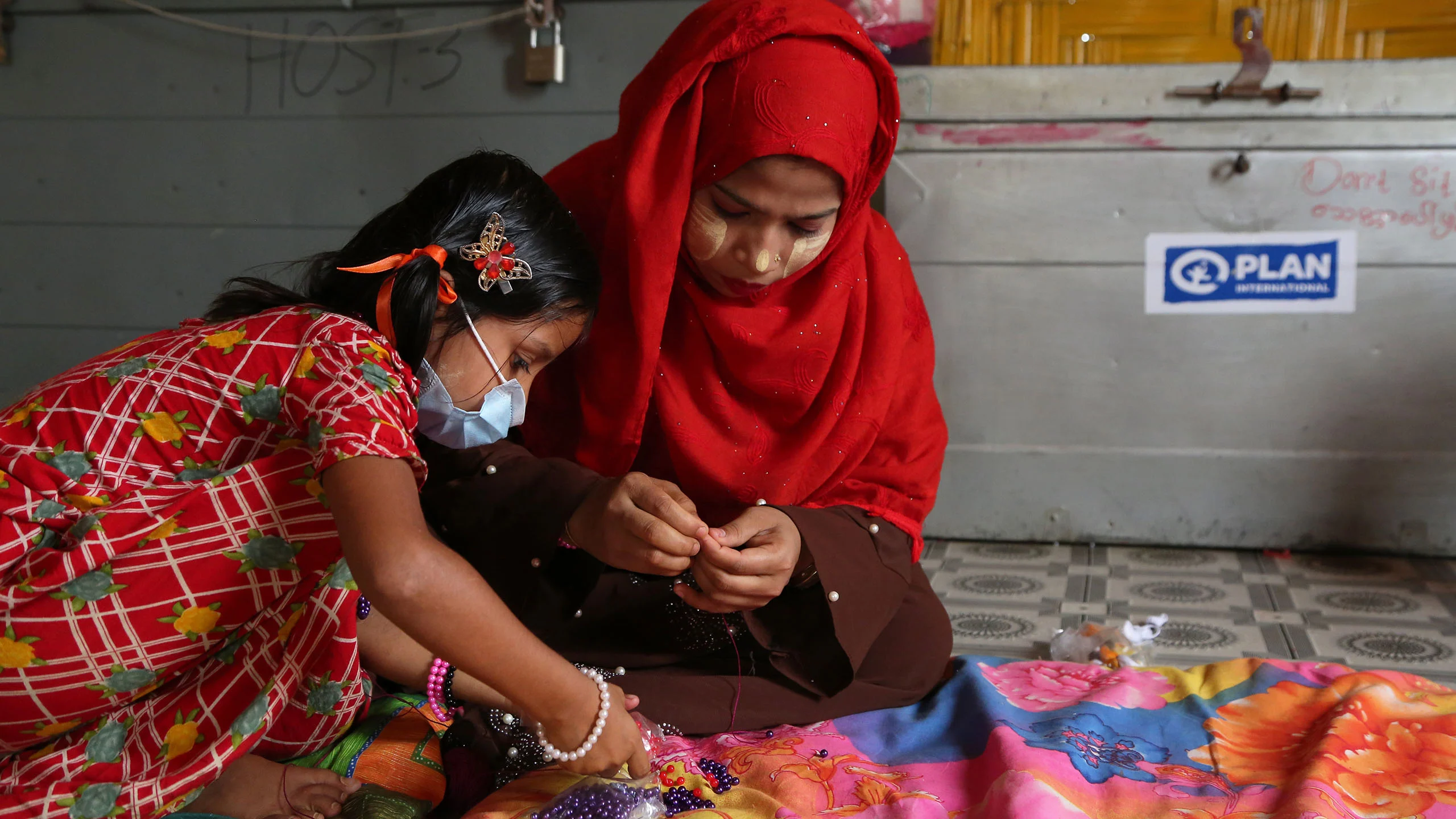
Delivered 18 humanitarian response projects
through the Australian Humanitarian Partnership (AHP), our partnership with the Australian Government, including 3 protracted crises – Ukraine, Syria and the Rohingya crisis.
responding in ukraine
After fleeing Ukraine, 13-year-old Arina and her mother Iryna have spent the last few months moving between various countries and shelters, finally settling in Bucharest, Romania, where they now share a home with two other mothers, one of them with another teenage daughter, who also fled the conflict.
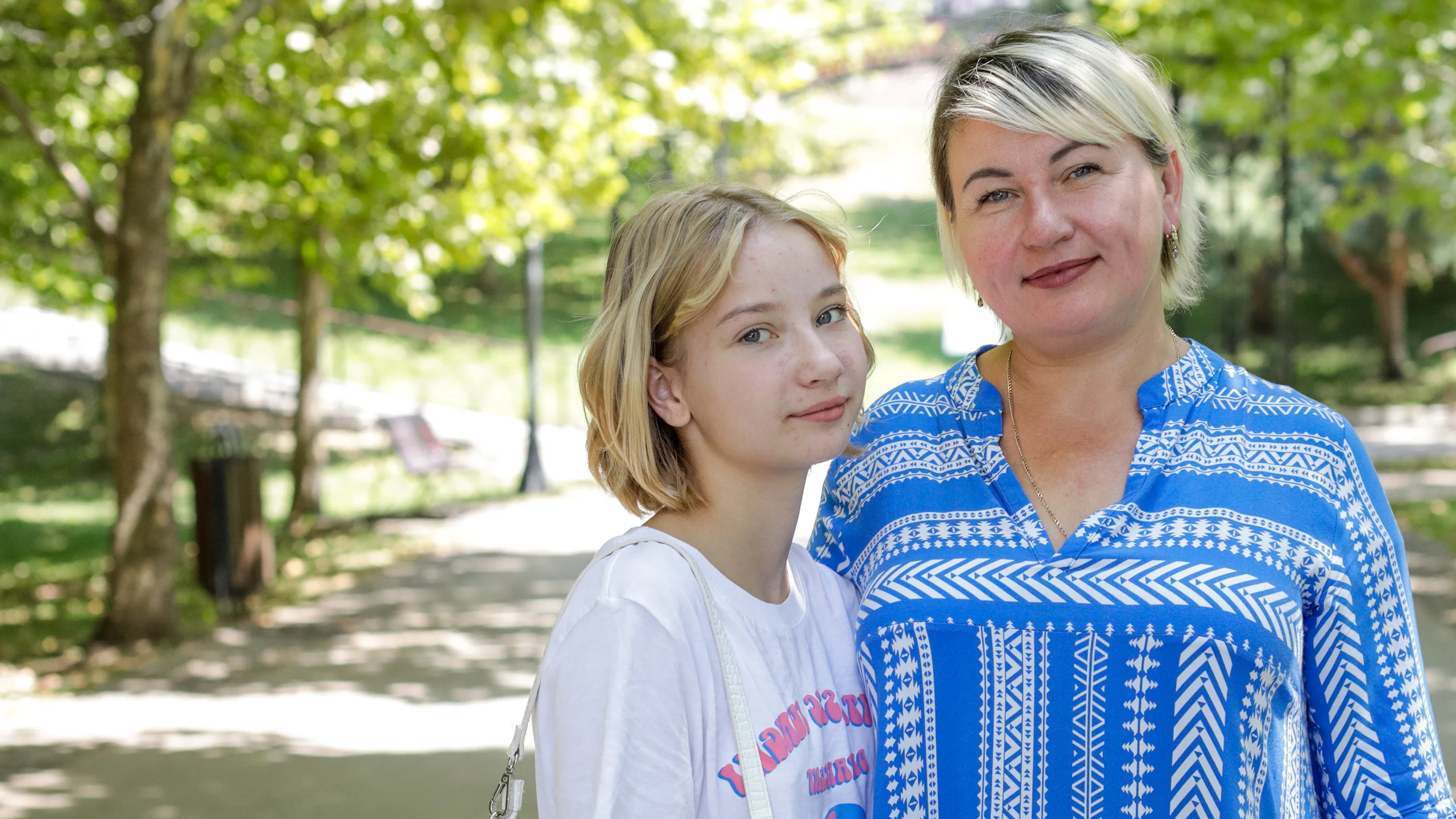
Through Plan International and our local partner ADRA, Arina and her mother have been part of our cash voucher program, an effective method of support that allows people to buy food and any other items they might need. This helps women and girls to maintain their independence and dignity.
“We spent the money buying fruit and vegetables for the children,” shares Iryna. "We also bought some medicine, hygiene products, underwear and other private items that women need.”
“The vouchers made us feel more secure as we had our own money….could make our own decisions.”
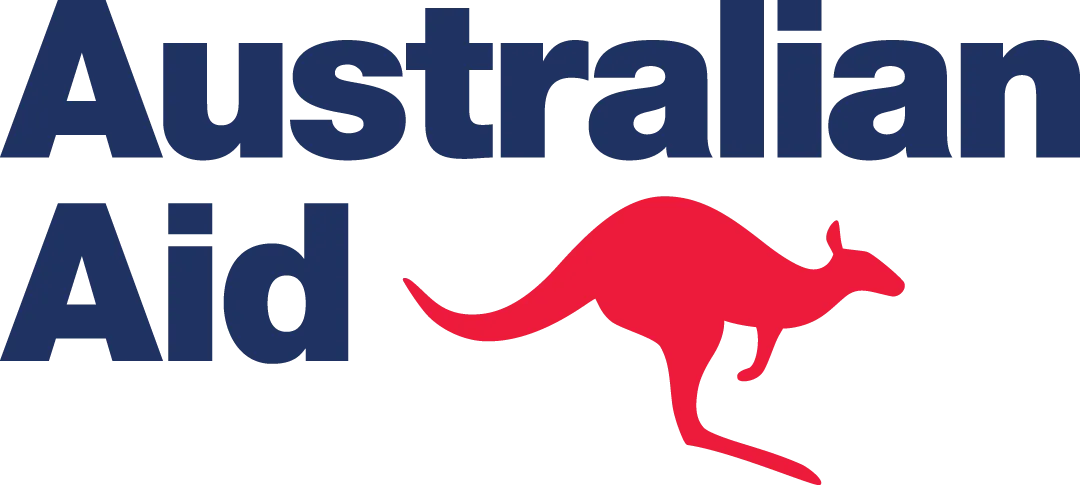
Plan International Australia’s Ukraine response is delivered in partnership with the Australian Government through the Australian Humanitarian Partnership (AHP) and with support from our partners Plan Netherlands, IMC and the Emergency Action Alliance.

Our ‘Learn’ programs aim to ensure vulnerable and excluded children, particularly girls, have the education and skills they need to succeed in life and support themselves financially. These programs include, Early Childhood Development, Inclusive Education and Youth Economic Empowerment.
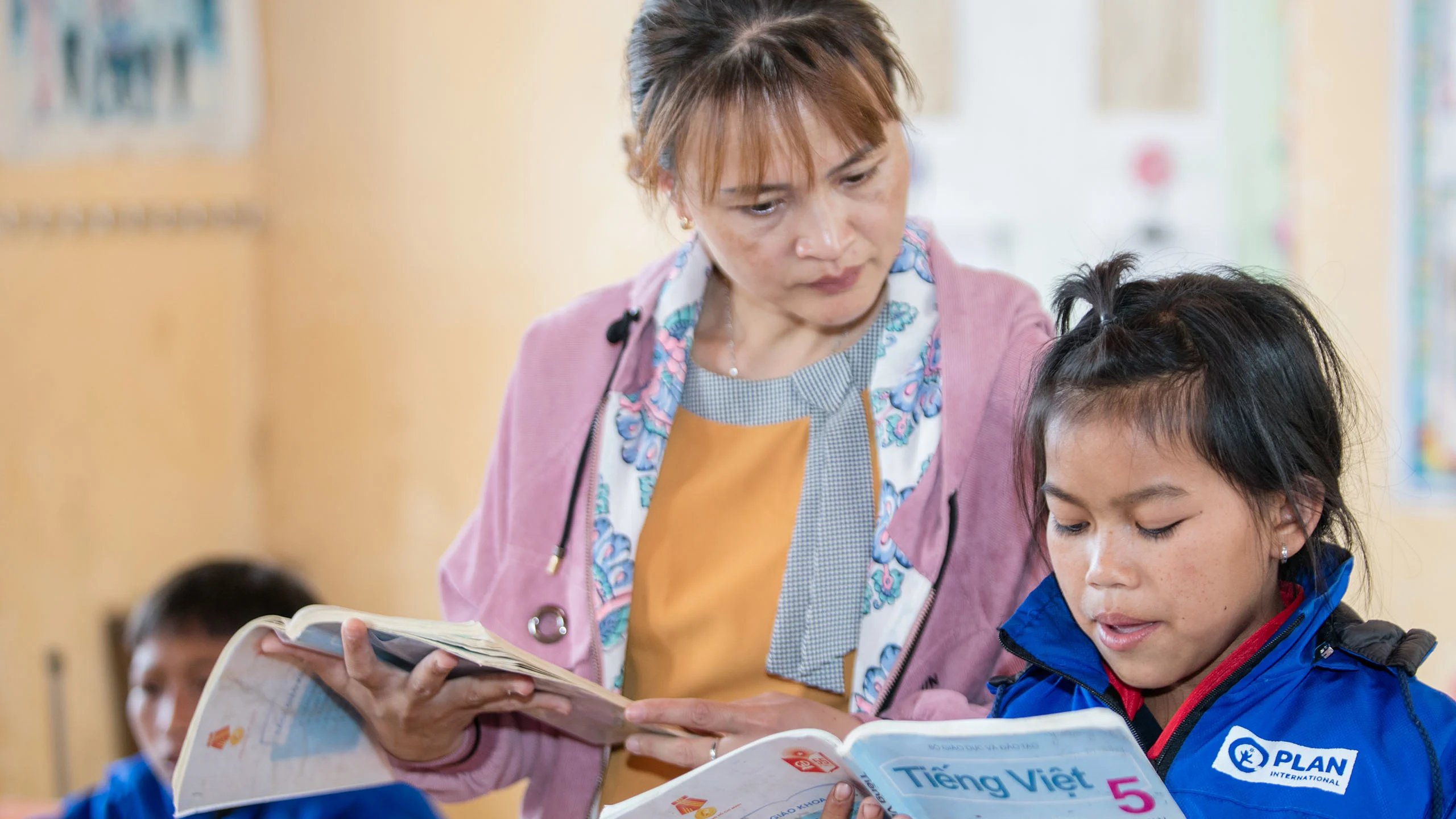
In FY22 we achieved the following impact through these programs
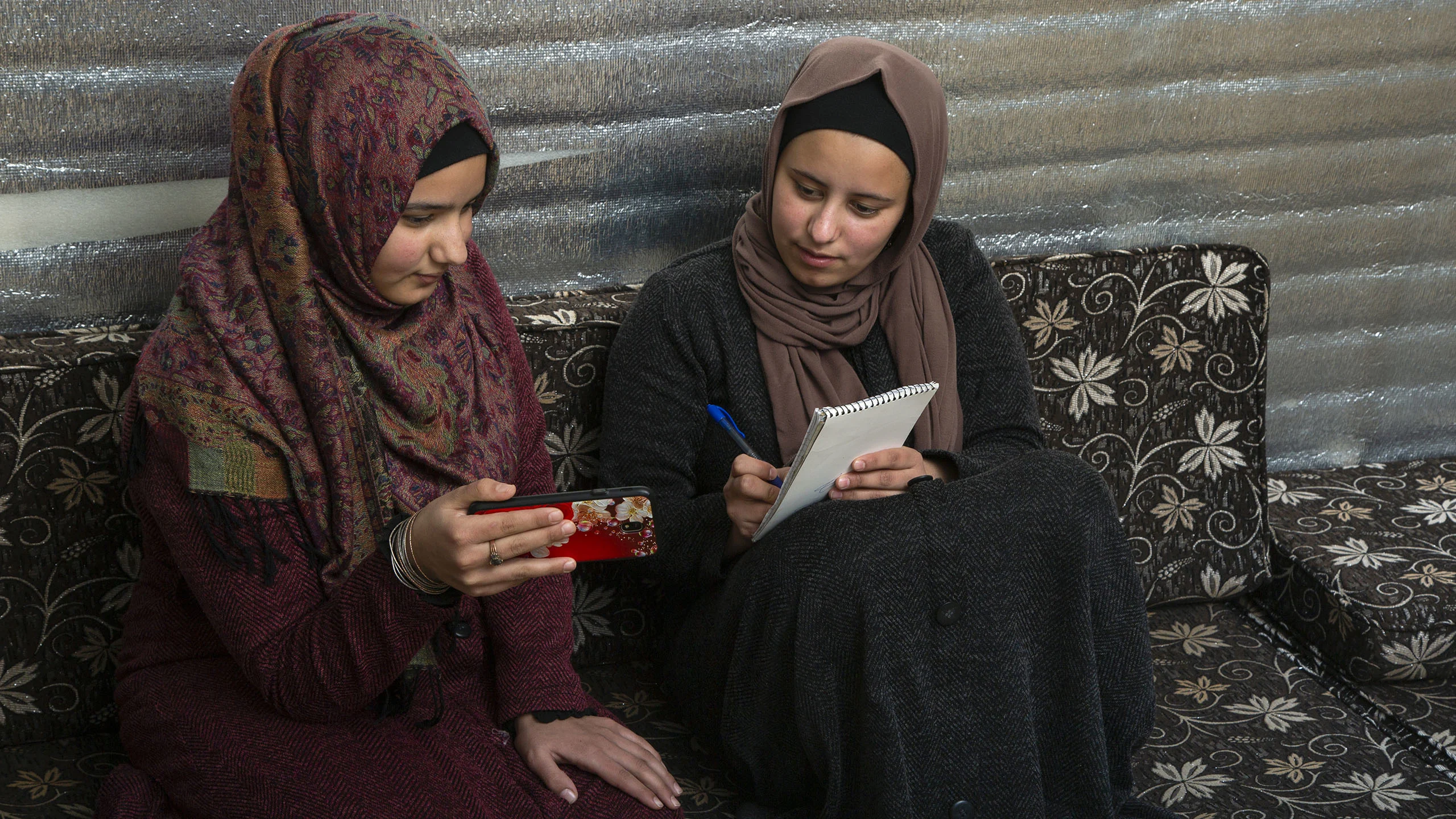
Supported over 900 out-of-school Syrian refugees
and Jordanian children to access informal education as well as vocational training.
Supported more than 38,000 students to explore career options
in five northern provinces of Vietnam through a curriculum developed in partnership with the Ministry of Education and Training.
Supported 62,000+ people in Bangladesh
to ensure children and youth have better access to education, child protection services, and livelihood opportunities.
Trained 604 lower-secondary school teachers in vietnam
in experimental models of learning, vocational skills development and inclusive education for girls and youth from ethnic minority communities.
Revolutionising education through Cambodia’s School Learning Gardens.
Despite Cambodia improving enrolment rates of children in primary school, Cambodian children, especially those in rural areas, continue to fall behind in school due to a lack of quality teaching and learning environments.
The School Learning Garden (SLG) project aims to improve educational quality and learning outcomes for students, as well as provide an enabling environment for both girls and boys to display gender-equitable and inclusive attitudes and behaviours at school.
The project transforms the school garden and kitchen spaces into an extension of the classroom and supports teachers to use experiential and hands-on learning techniques.
It’s a groundbreaking approach to education in Cambodia, inspired by the evidence-based model of the Stephanie Alexander Kitchen Garden Program in Australia, which is currently implemented in over 800 schools.
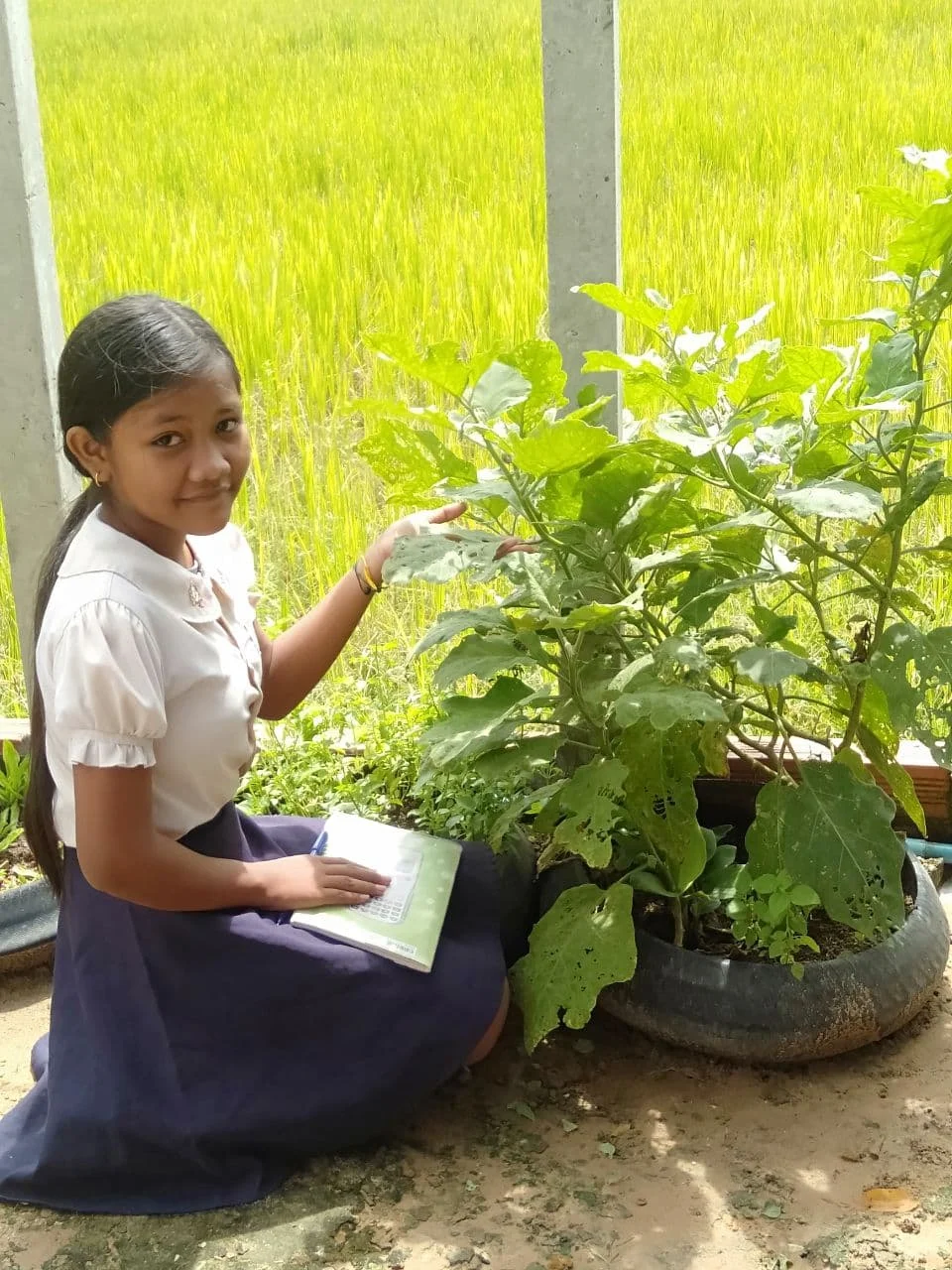
12-year-old Dany, now in grade 6, has been participating in SLG activities for the past two years and enjoys the hands-on nature of lessons amongst the leaves and vines.
I have learned how to cook in the learning kitchen, we learn about nutritious foods that can make us become healthy, and how to be safe when learning and working in the kitchen. I like to cook green vegetable soup.
“When I cannot easily understand the theory for difficult lessons in the classroom, I can learn better with hands-on activities,” she explains. “I learned the theory in the class about how to grow the vegetable [and] through practice in the garden, I can prepare soil, mix the compost fertiliser with the soil, prepare the garden bed and could start growing Morning Glory (water spinach)”.

The School Learning Garden project is delivered in partnership with the Australian Government through the Australian NGO Cooperation Program (ANCP), and with support from the Stephanie Alexander Kitchen Garden Program and funds generously donated to Plan International Australia from the Australian public.

Our ‘Lead’ programs aim to ensure vulnerable and excluded children, particularly girls, have the power to take action on issues that matter to them, and shape the decisions that affect their lives. These programs include Child Centred Disaster Risk Reduction and Climate Change Adaptation, and women’s leadership and gender equality focused programs like Safer Cities for Girls.
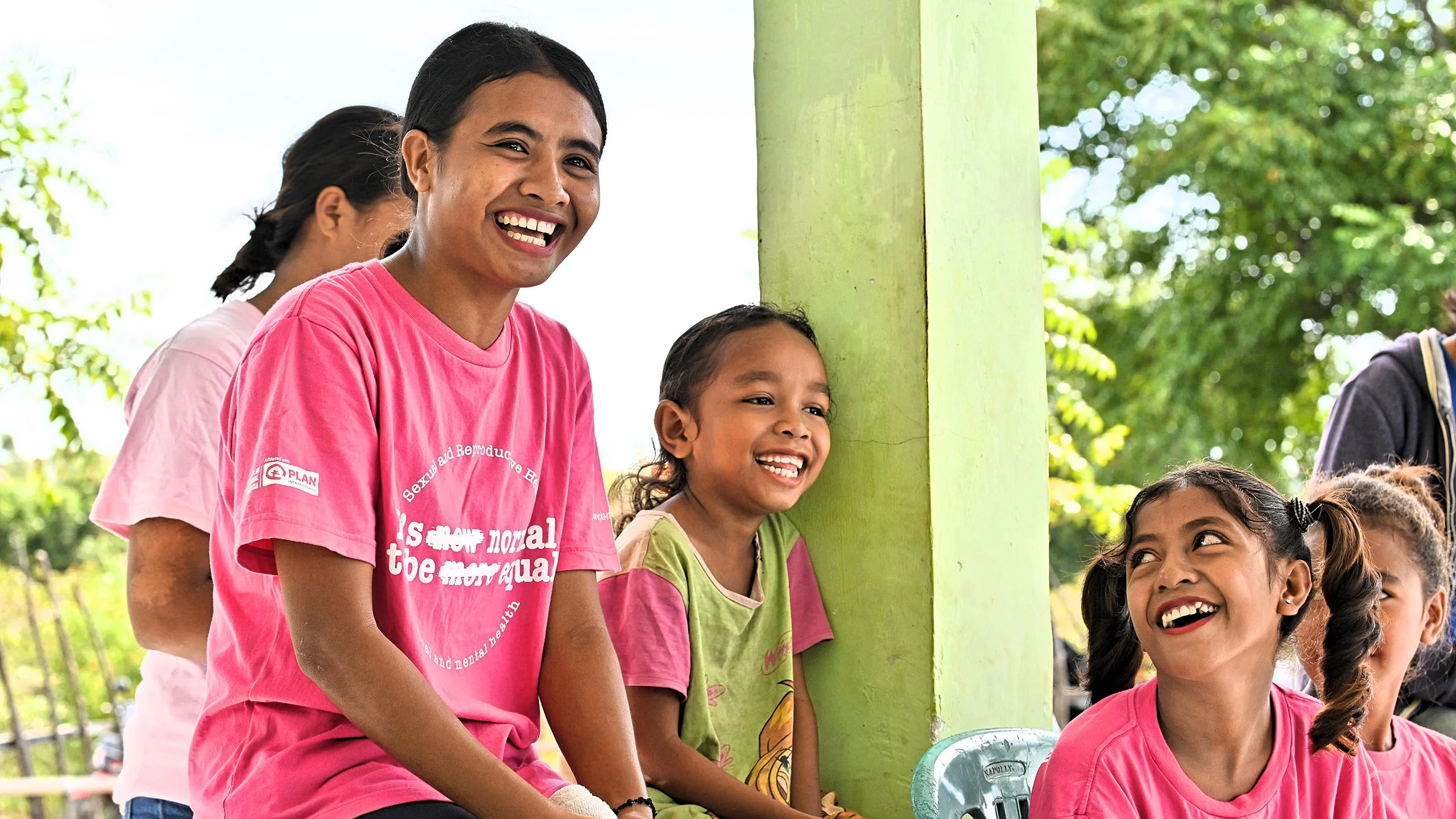
In FY22 we achieved the following impact through these programs
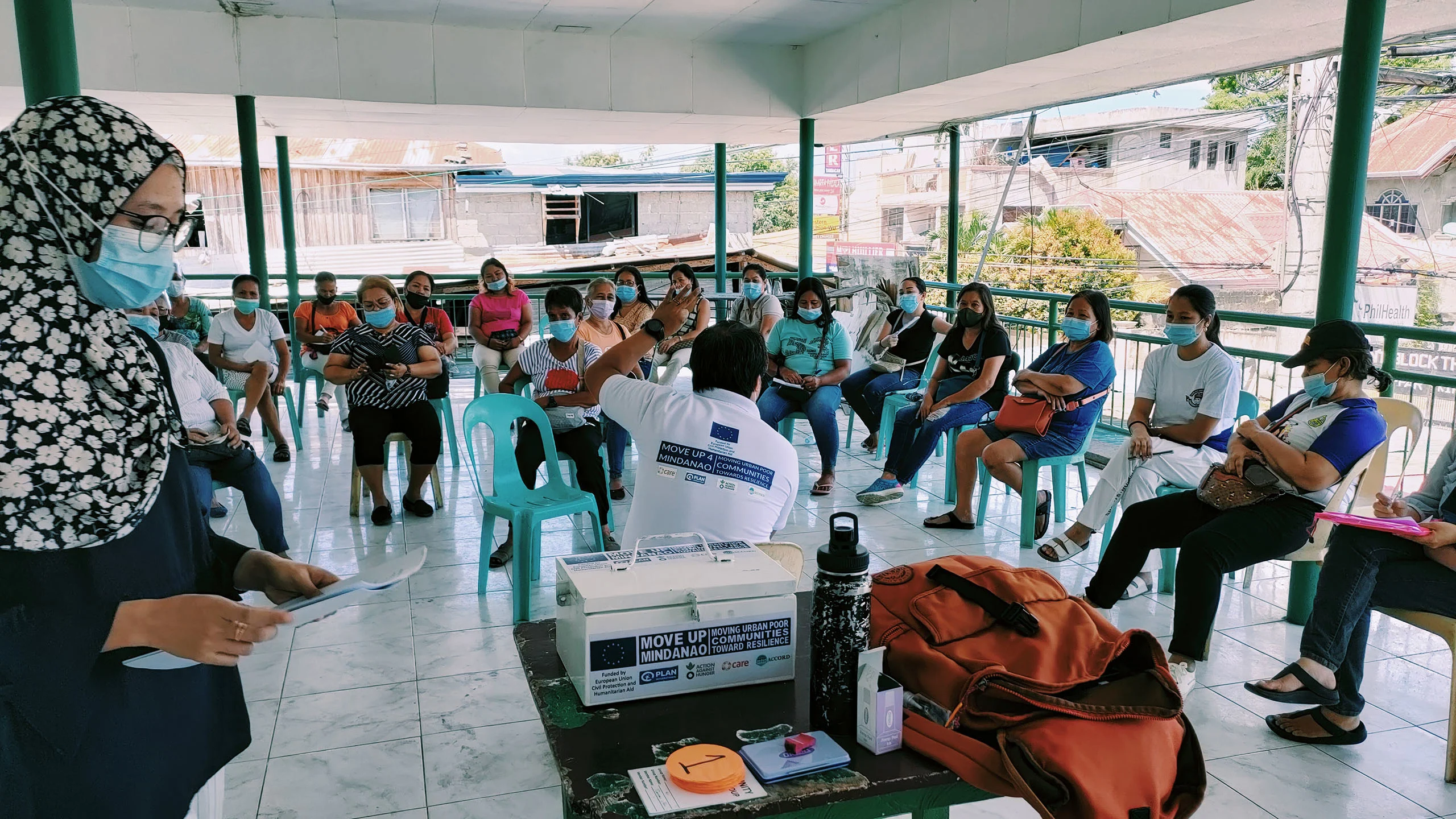
Trained 78 government representatives
in Philippines on community-based disaster risk reduction and management, resilient livelihoods, child protection and gender and inclusion approaches, to support local governments, deliver community consultations and engage youth in urban resilience planning.
Reached 1.3 million young people
through a digital climate change awareness campaign and comic books developed in partnership with UNICEF, the National Meteorology Agency and young climate change leaders in Indonesia.
Supported 634 men and 640 women
to participate in sessions on gender issues and women’s equal rights as part of our Youth Empowerment Project in Bougainville.
Rising tides: Supporting youth leadership in climate action
Plan International acknowledges that the only way to achieve sustainable climate resilience is through youth leadership and fully engaging girls and young women in all of their diversities in climate action, and we are committed to developing climate leaders and creating space for youth leadership in climate change through our advocacy and programs.
In February 2022, in partnership with Plan International Finland and supported by nine other Plan International offices, we released Rising Tides: Mapping Youth Movements for Climate Resilience, a global research report bringing together important findings from young researchers and youth groups from nine countries bearing the brunt of the climate crisis.
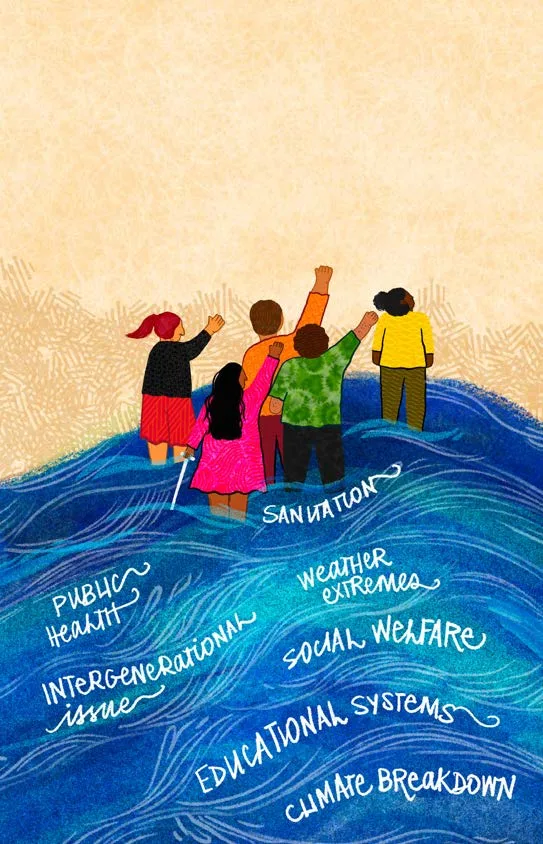
Illustration and Design: Sonaksha Iyengar www.sonaksha.com
Eleven young researchers from Myanmar, Laos, Solomon Islands, Fiji, Indonesia, Ethiopia, Uganda, Mozambique and Zimbabwe conducted a joint desk review of climate change policy to identify youth-led or youth-oriented organisations, groups, and movements for climate change adaptation.

The Rising Tides report was supported by the Australian Government through the Australian NGO Cooperation Program (ANCP) and with support from the Ministry for Foreign Affairs of Finland (MFA). resilience strategies and actions within the projects under the My Body, My Future (MBMF) programme, as well as

Our ‘Decide’ programs aim to ensure vulnerable and excluded children, particularly girls, have control over their lives, their bodies and their futures, and make informed choices about identity and relationships, and if and when to have children. These programs include life skills and identity focused programs, young women’s leadership, integrated sexual and reproductive rights and maternal and child health activities.
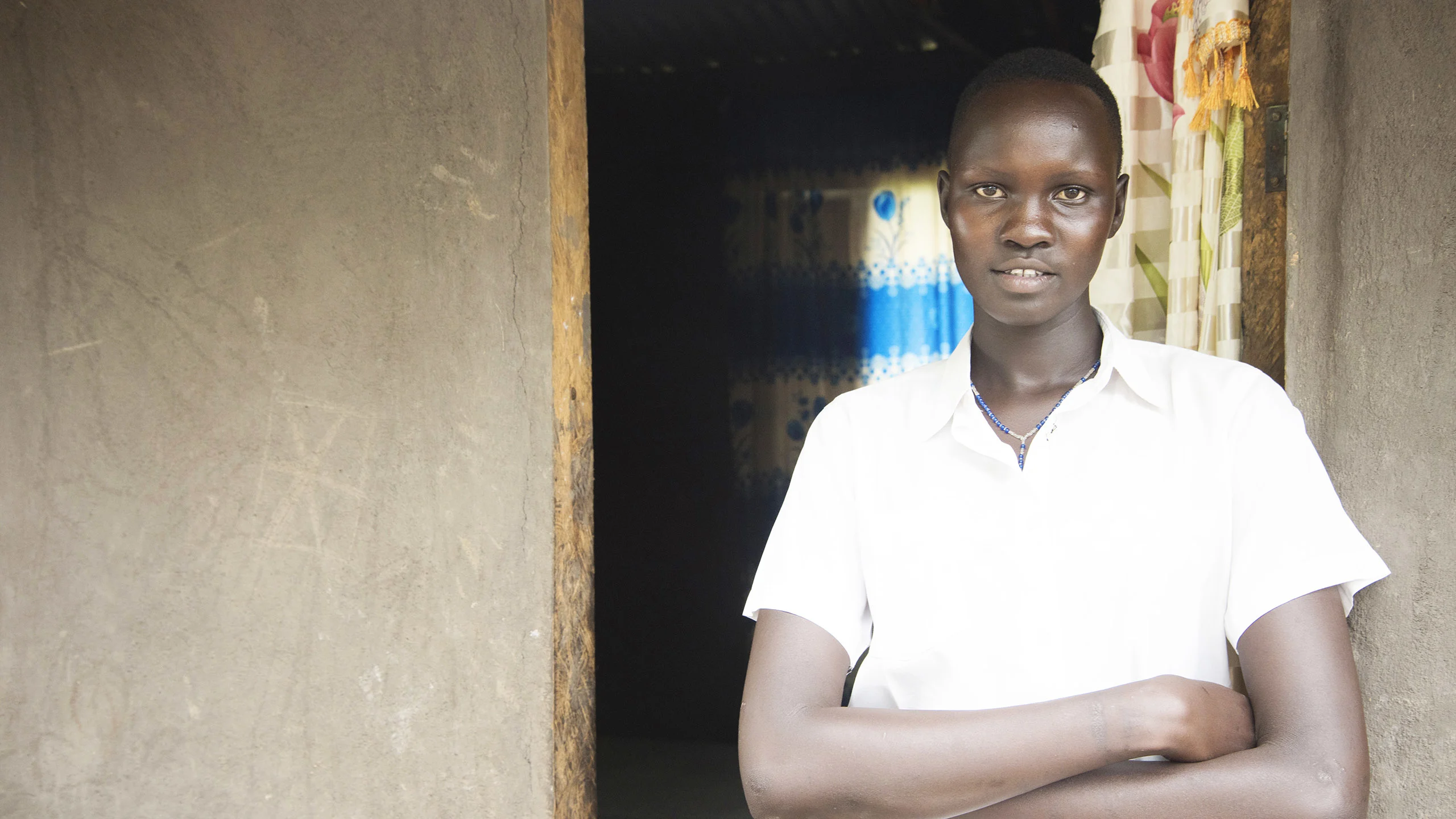
In FY22 we achieved the following impact through these programs
Improved the capacity of 36 healthcare workers
from rural health facilities in Bougainville building stronger adolescent sexual and reproductive health services that will positively impact thousands of girls and young women. This has increased young people's knowledge and adoption of positive ASRH behaviours.
The program also recruited a Plan International PNG Clinical Officer based in the Family Support Centre located within the Arawa District Hospital grounds, with the purpose to provide ongoing ASRH counselling and referral services to young people, and capacity building for healthcare workers.
our Adolescent Girls in Crisis program in Uganda:
Supported young women and girls to manage their sexual and reproductive health, with 73% of participants reporting improved confidence in this area.
Through the Enterprise Your Life (EYL) program, 42% of participants were supported to start their own business.
82% of adolescants who undertook the EYL program reported improved budgeting and saving habits.
73% of adolescents reported being able to access sexual and reproductive health services when needed thanks to various interventions that supported health care service providers in providing adolescent-friendly SRH information and services, and built adolescent girls confidence in seeking services.
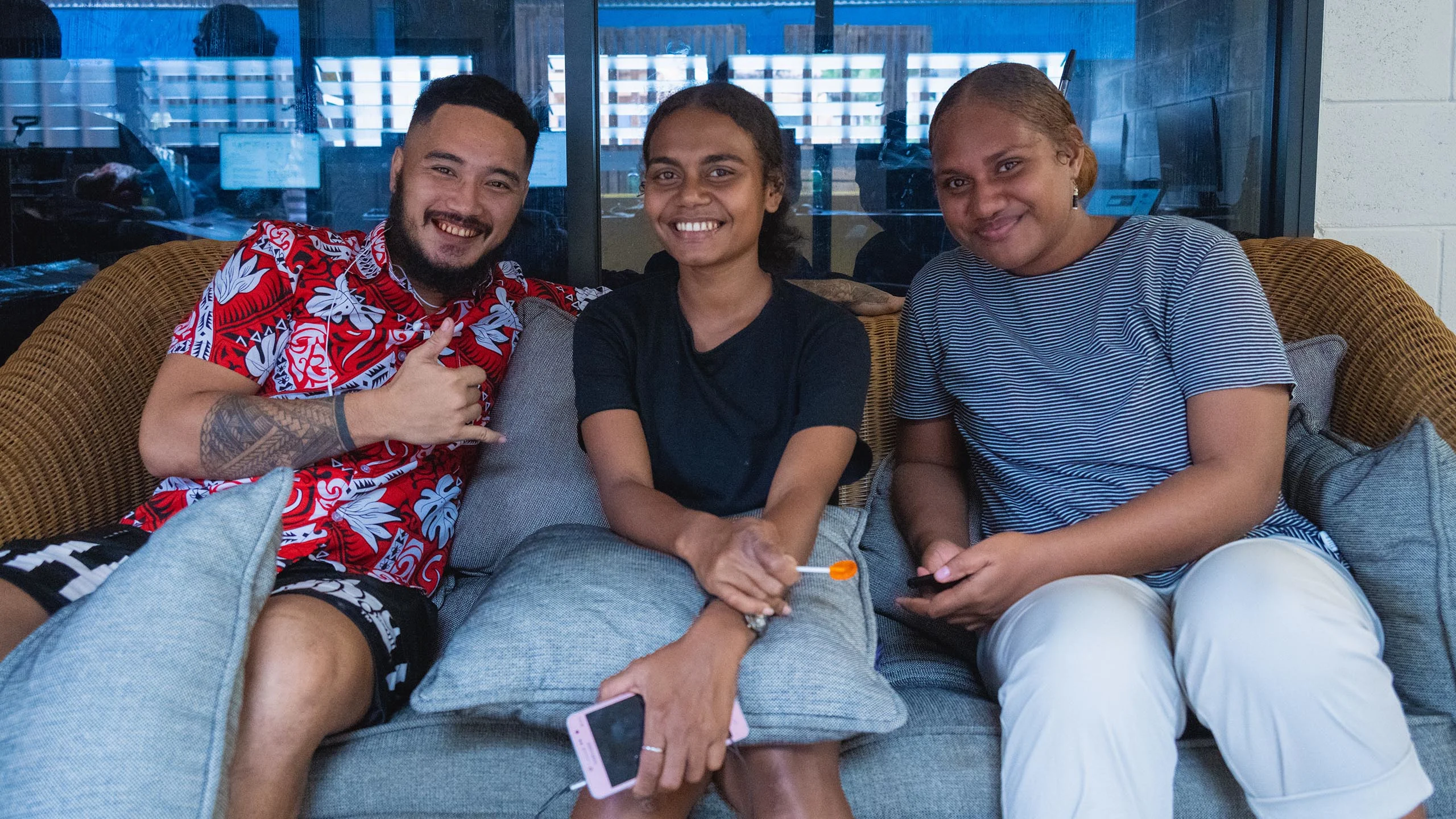
Trained 317 adolescent youth
in Solomon Islands in gender equality and social norm change. The Change program, in partnership with Honiara City Council and the Young Women’s Christian Association, focuses on girls empowerment, boys engagement, peer-to-peer mobilisation and intergenerational dialogues with families, caregivers and communities.
young women and girls leading change in Uganda
Supporting refugee settlements and host communities in Uganda’s Adjumani District since 2019, Plan International’s Adolescent Girls in Crisis program supports adolescent girls (10-19) and young mothers (14-24) to realise their social and economic rights by decreasing their risk of gender-based violence, child marriage and improving livelihood opportunities.
The program also engages with boys and young men, through our Champions of Change modules, which help to empower both girls and boys to identify and challenge harmful gender norms that perpetuate discrimination and inequality.
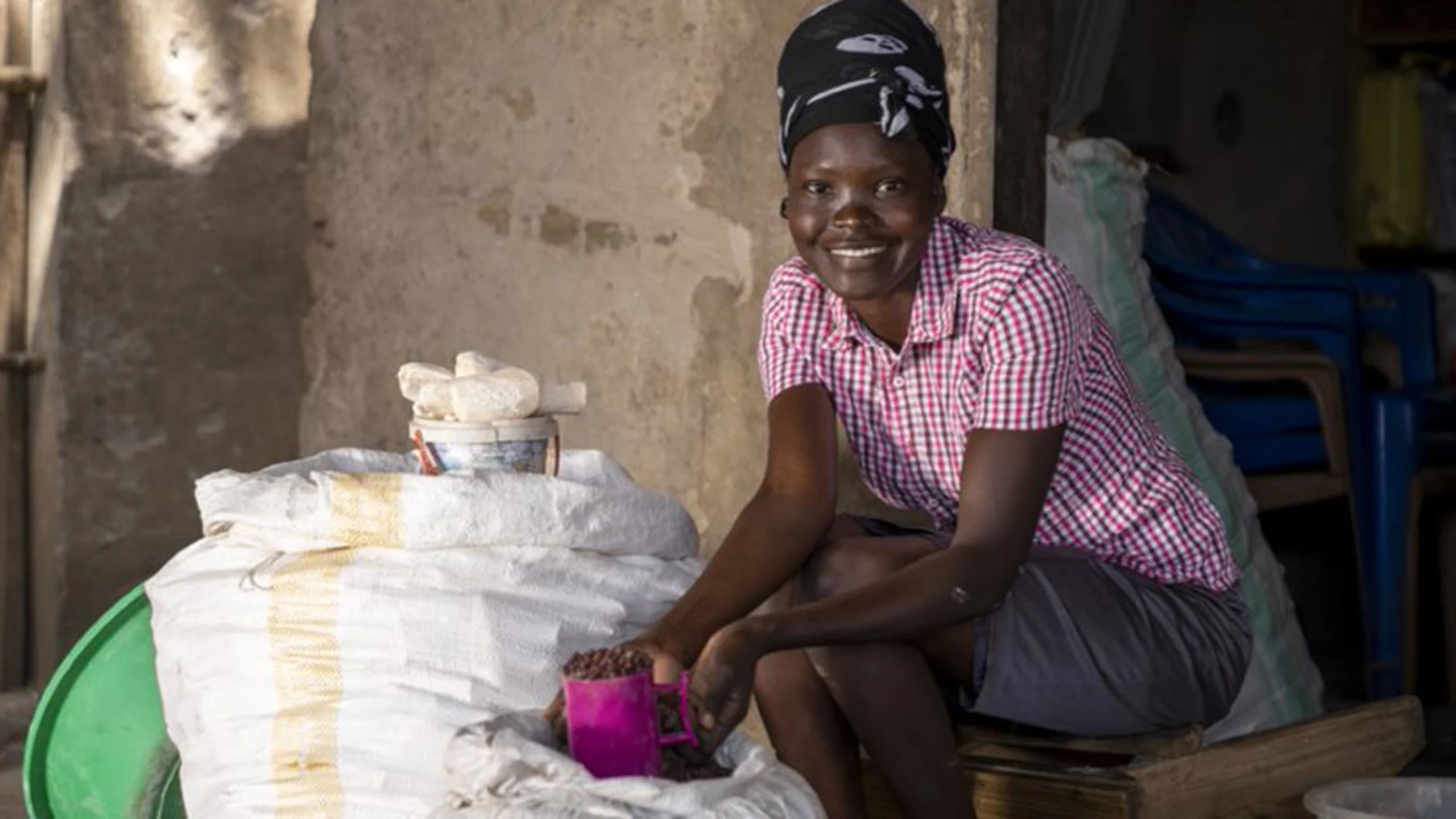
23-year-old Ruth lives in Adjumani district. Through the Youth Savings Group she learnt how to save, borrow, invest and keep records and she used the money she borrowed to start a business.
“I borrowed 100,000 shillings from the group. I started buying the sorghum and the red cassava. The other remaining money I used for transport, then I used the profit for buying the beans and the maize, so that’s how I came up with the business."
The money, I use some of it… for my school, and even our siblings from home to support them with sanitary pads, scholastic materials - I can even pay their school fees. Because of this I now feel very safe and happy.”

The Adolescent Girls in Crisis program is supported by the Australian Government through the Australian NGO Cooperation Program (ANCP).

Our ‘Thrive’ programs aim to ensure vulnerable and excluded children, particularly girls, grow up healthy, valued and cared for and free from discrimination, fear or violence. These programs aim to reduce gender-based violence, promote positive parenting, address child protection, nutrition and water, sanitation and hygiene (WASH).
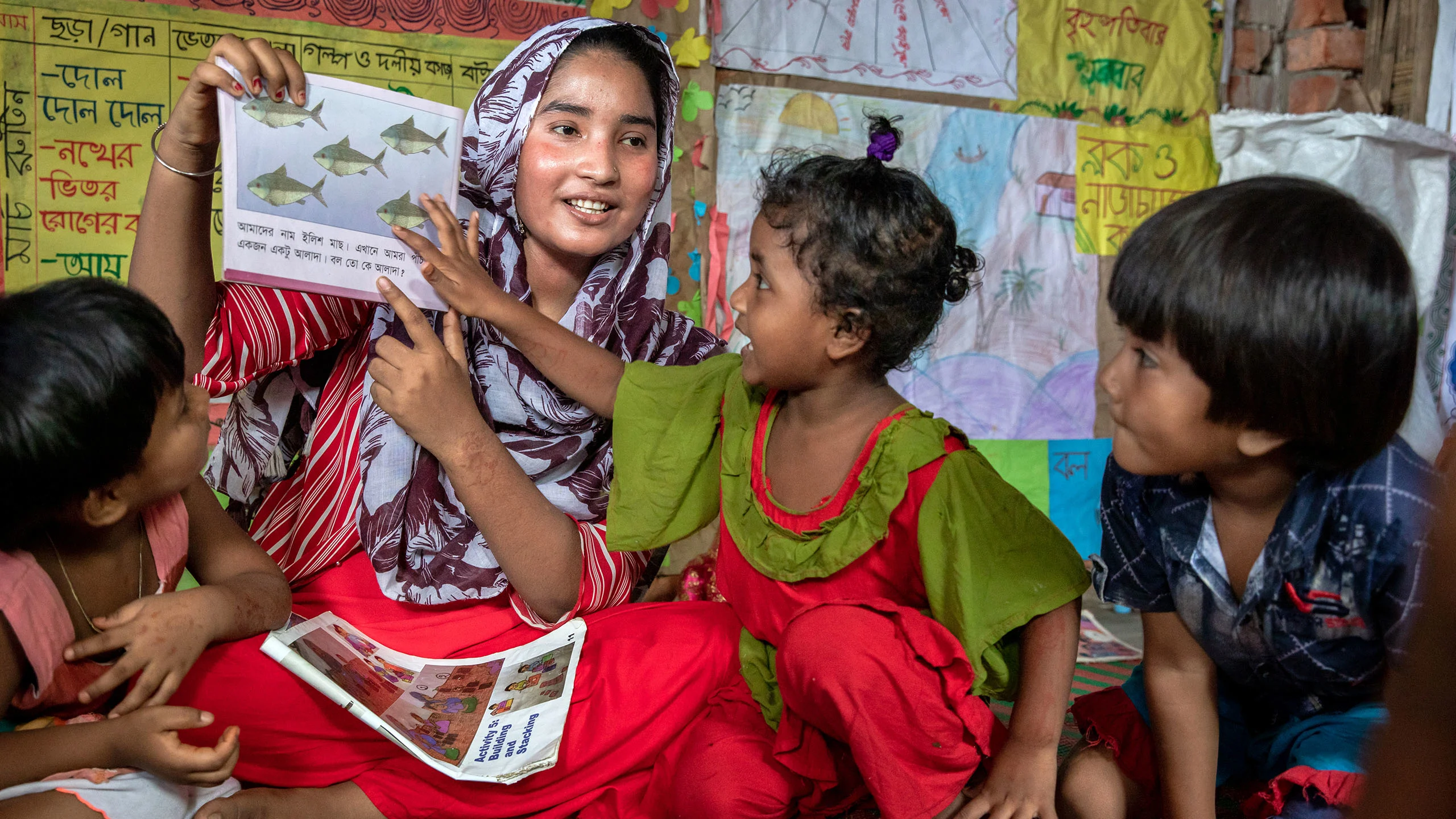
In FY22 we achieved the following impact through these programs
Increased access to parenting support through a virtual platform
in Indonesia, providing information on nurturing care, holistic child development, and men’s engagement in child health. The platform was accessed by 858 participants (245 pregnant women; 613 mothers of 0-24 month old children) and 30 implementing partners, including midwives, nutritionists and health workers.
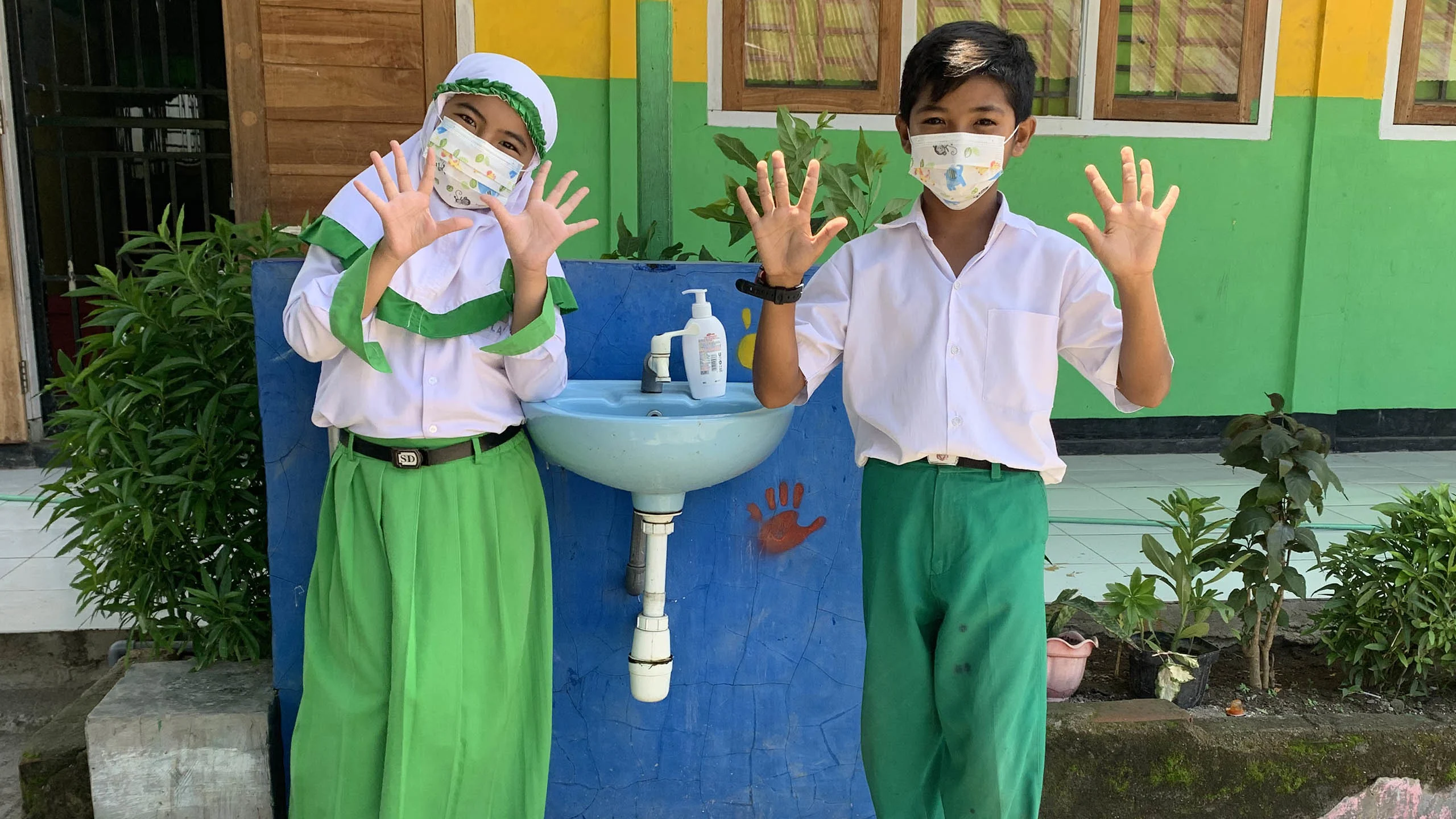
Improved WASH facilities in 20 schools
and 42 health facilities in Indonesia, supporting children’s health and learning and in particular ensuring girls can continue to go to school during their period.
Provided birth certificates to 1,803 children
in Indonesia and continued to support the expansion and development of our groundbreaking digital birth registration program OpenCRVS.
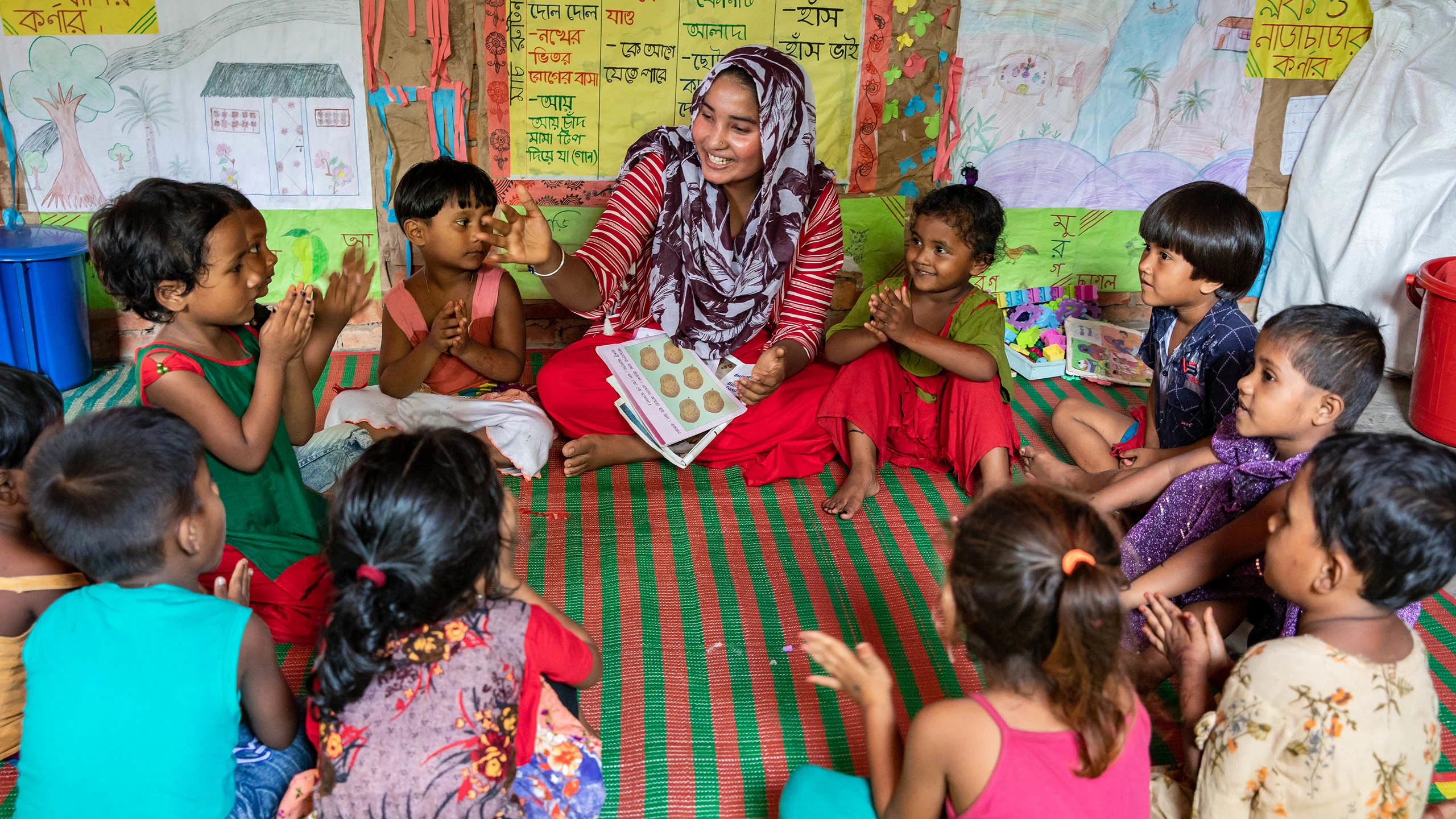
Supported 220 early learning centres to reopen in Bangladesh
supporting 3156 children back into education. In the Rohingya refugee camps in Cox's Bazar, Plan International Bangladesh has established 110 Early Childhood Development (ECD) centres, which includes training of ECD facilitators in pedagogy, curriculum, inclusion, gender-transformative education and safety. Country wide, over 6500 parents and caregivers have undertaken positive parenting programs which encourage a father's role in child rearing.
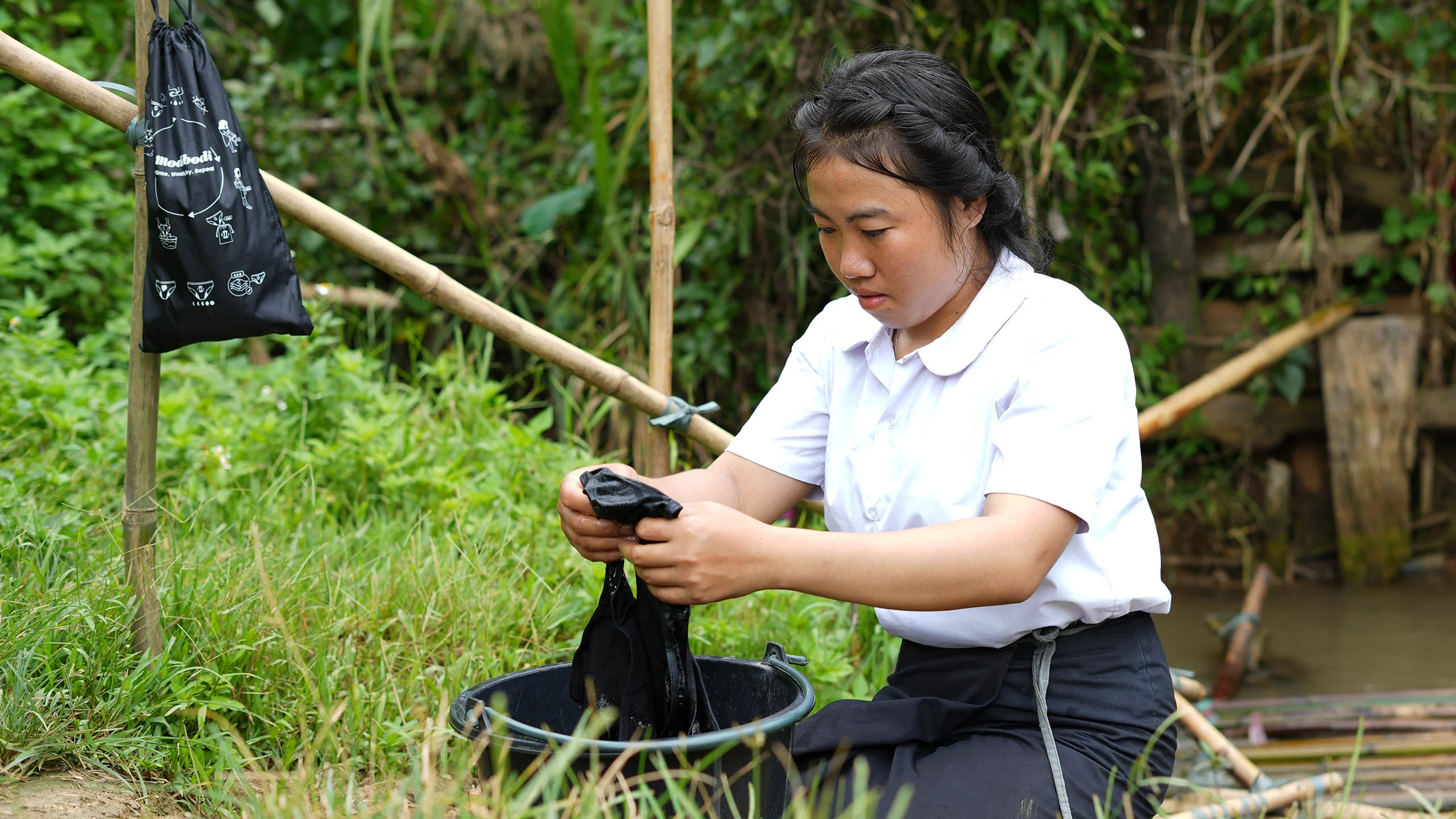
Distributed 22,000 pairs of period pants
to girls in secondary schools in Laos through our WASH and ongoing partnership with Modibodi, a well-known Australian brand that makes sustainable, reusable period underwear.
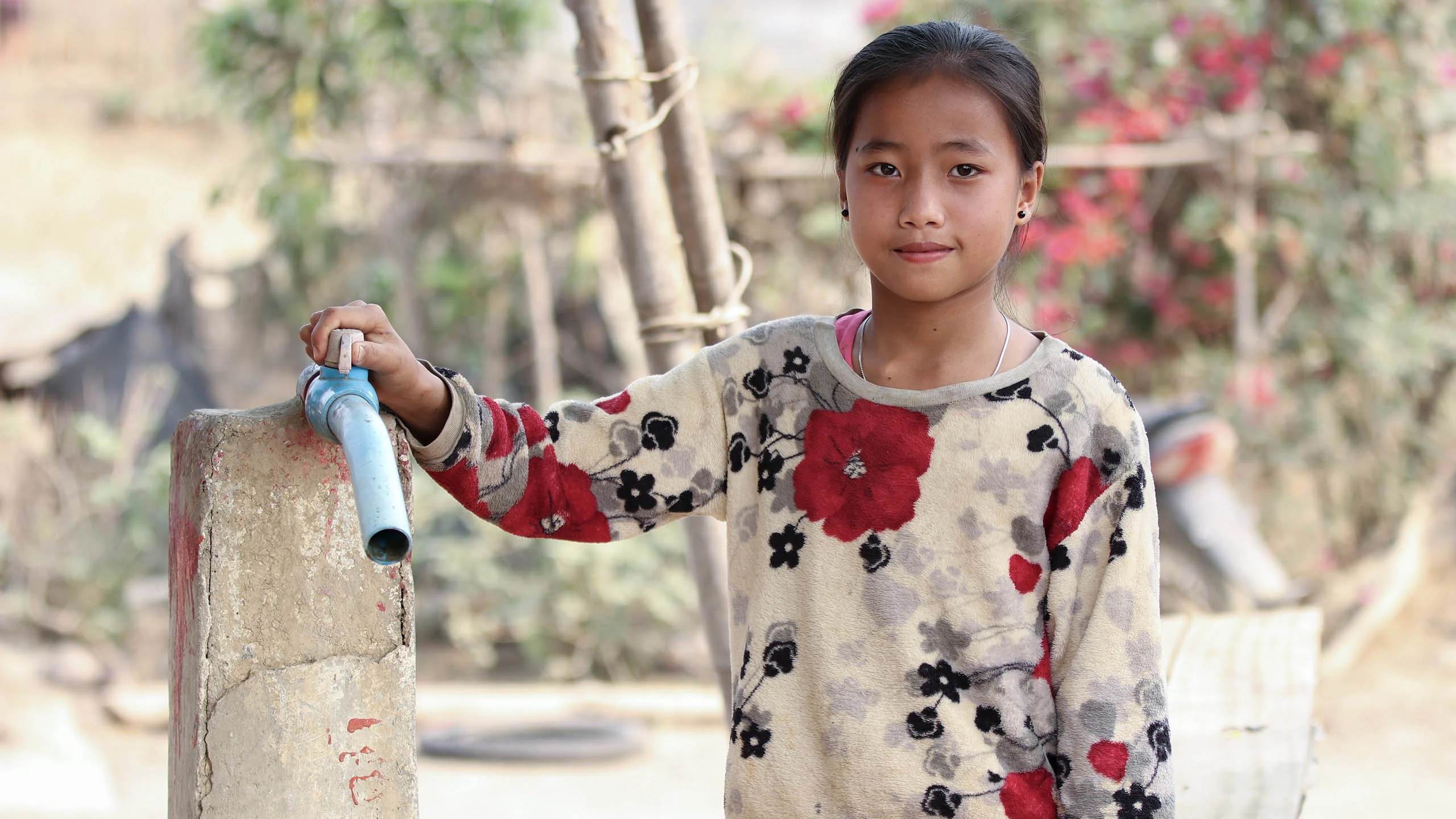
Assisted 1,580 adults and 1,429 children
in Laos to access newly rehabilitated water supply facilities (including 799 women and 722 girls).
gender transformative early childhood development
Parents everywhere strive to provide children with the care and support they need to thrive into adulthood. However, in Bangladesh where son preference is strong, family resources are limited, and parents believe that girls and boys have different needs, girls can receive less nutrition, learning opportunities and access to services than boys.
Together with non-governmental organisations (NGOs) and local partners, we have been working to improve access to inclusive, safe and gender-transformative education for children and adolescent girls and boys living in refugee camps.
The program’s goal is that all children under eight years develop to their full potential, free from discriminatory and limiting attitudes, practices and expectations based on gender, ability and other identities.
23-year-old Jamila, a facilitator at a local learning centre, participated in training on Plan International’s gender transformative ECD approach. She is passionate about helping others to learn and has already noticed the difference that her new gender transformative approach has had on the children she works with. “In my centre, everybody will come together, play together,” shares Jamila. “It’s not like that only boys will play football and girls will not. Boys and girls both have rights to play football.”

Plan International’s Education in Emergencies and Child Protection in Emergencies project is part of a three year program funded by the Australian Government through the Australian Humanitarian Partnership (AHP).

We work alongside our youth activists, Asia and Pacific partners, and other Plan International offices to fight for gender equality and the rights of girls, young women and gender diverse young people. We mobilise public support, and use evidence of impact to influence decision makers to create significant change.
Campaigning for a more representative Parliament
Plan International has been campaigning on increased diversity and gender parity in Australian Parliament for a number of years, and this year launched ‘Represent Us’, a pre-federal election campaign calling for a more inclusive and safer Parliament, and specifically for political parties to set enforceable targets and adopt recommendations from the Set the Standard report (released 2021).
The campaign consisted of a research report launched in May 2022 and a digital action driven by our Youth Activists, asking supporters to stand with young people, and amplify their recommendations by emailing decision makers. Supporters participated in the digital action, we had meetings with key decision makers and held a public event which attracted coverage in broadcast and print media reaching an estimated 65 million people.
Making online spaces safer
In late 2021, young people came together from Vietnam, Indonesia and Australia to research how active bystander intervention can fight the growing levels of gender-based violence and harassment that young people experience online.
Youth leaders worked together to design the guiding project questions and conduct focus group discussions with peers, all of which became the basis for The Future Online report.
Launched in September 2021, the report called for governments to develop and deliver (with young people) comprehensive digital literacy education that addresses online gender-based violence and harassment, provide mental health support to young people confronted with online harassment and abuse, and urged social media companies to create safer online spaces.
A public facing campaign calling on the Australian Government to consult with young people on the Online Privacy Code followed, and Plan International Australia supported Youth Activists to directly influence social media companies. Thanks to our campaign, the government announced and ran public consultation with young people at the beginning of 2022, both with under 18s and 18-25s.
$30 million for Safer Cities
Through advocacy and campaigning, Plan International has been working to create safer cities for girls, both here in Australia and around the globe.
In Australia, we’ve had a number of wins along the way, many of them stemming from our 2016 Free to Be project, a collaboration with CrowdSpot, Monash University’s XYX Lab and young women.
This year, the NSW state government acknowledged our Free to Be research as one of the catalysts (along with decades of survivor’s advocacy and girls and young women’s calls to action) for a $30 million commitment to stopping street harassment.
As a result, public spaces, parklands and public transport in NSW will undergo a safety overhaul in consultation with girls and young women, to ensure girls and young women can more safely move around cities.
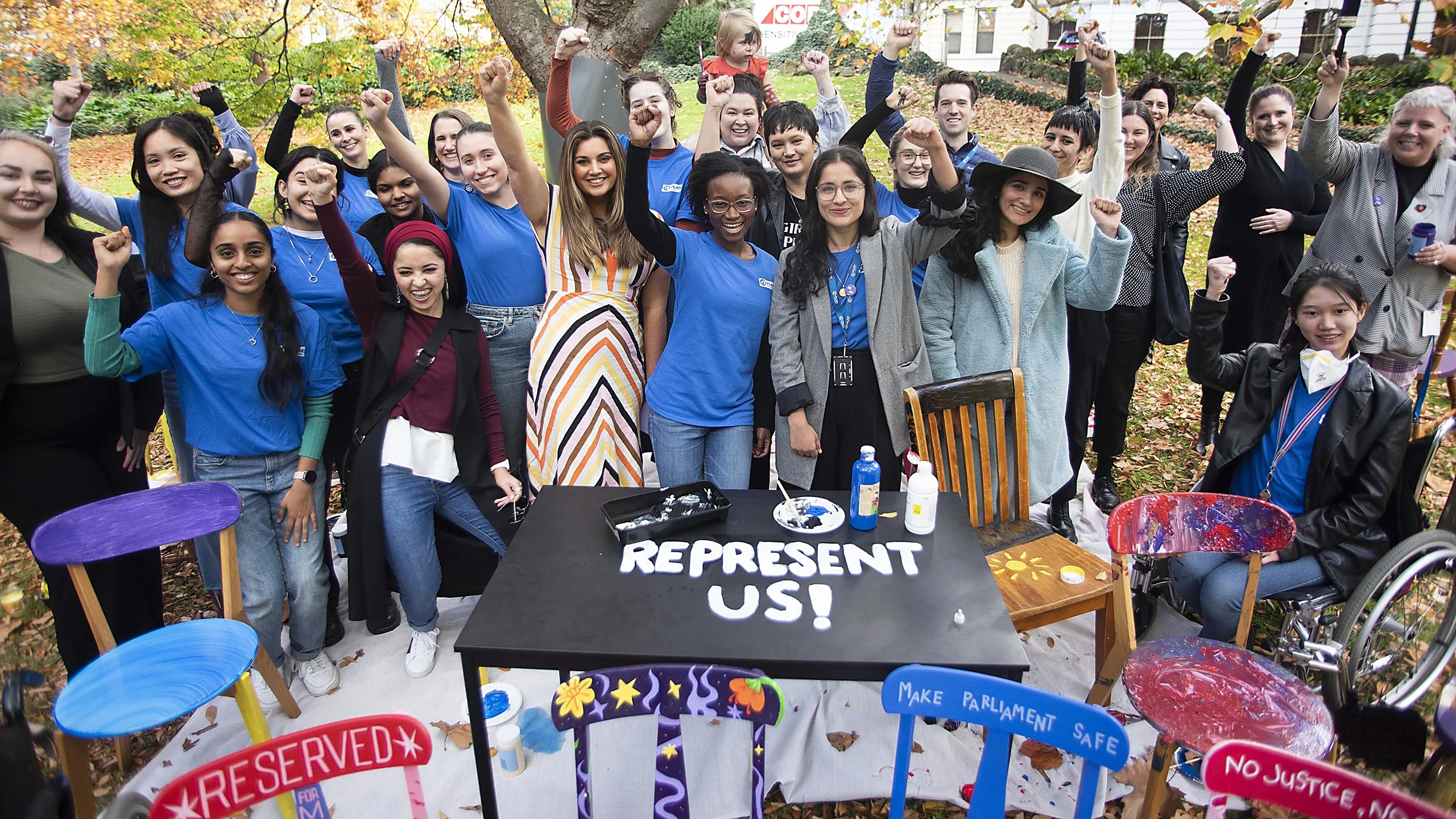
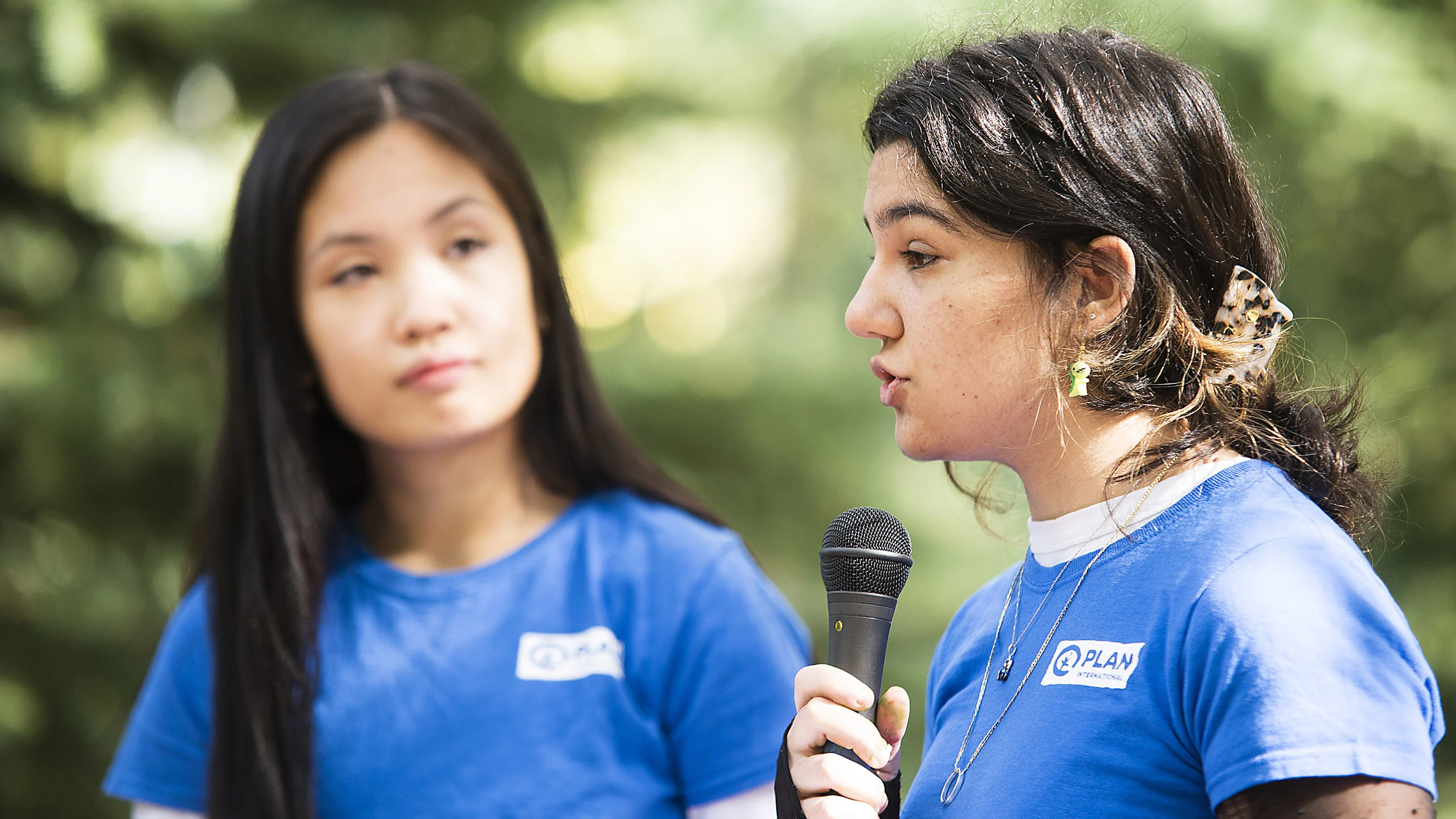
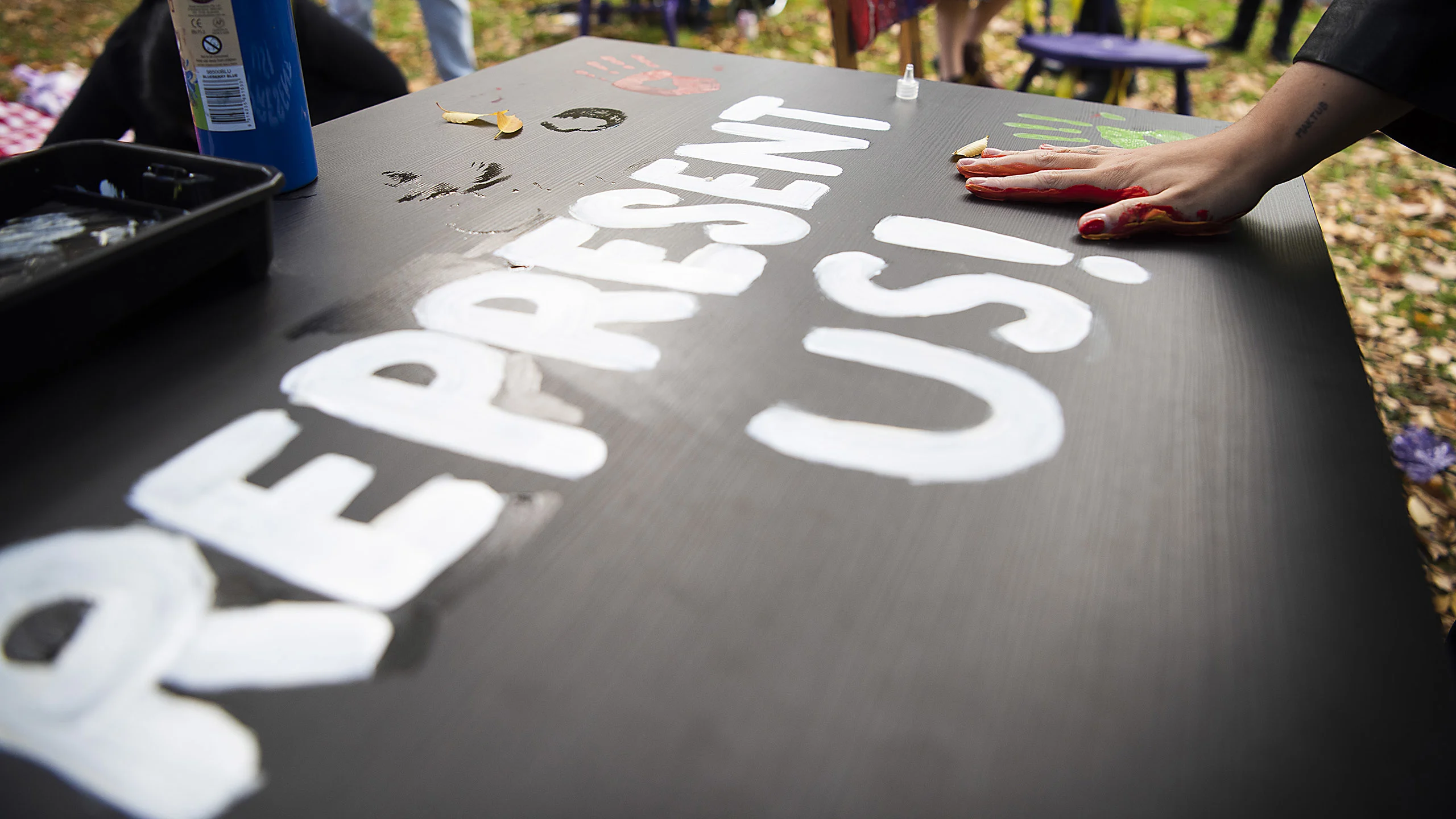
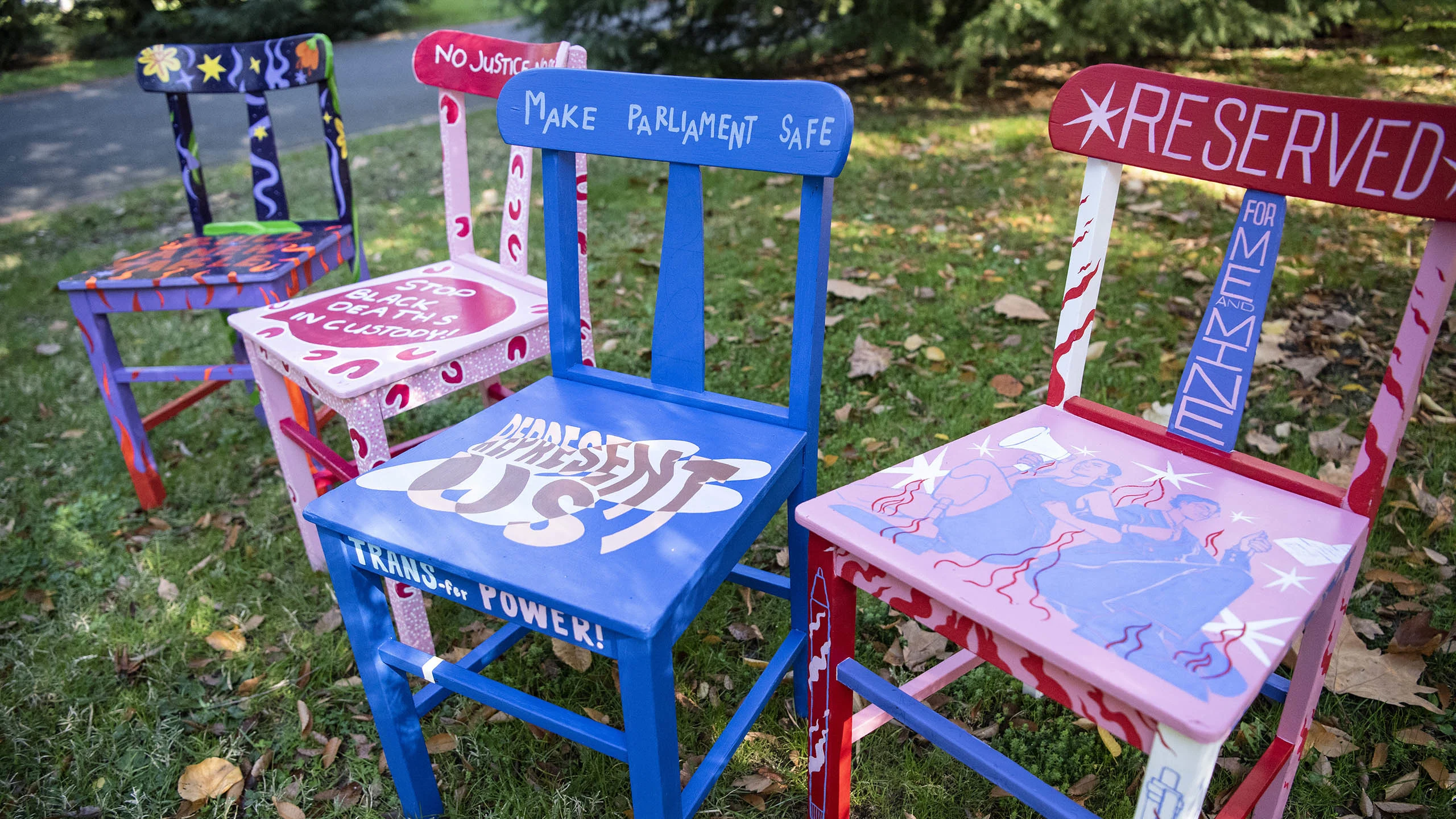
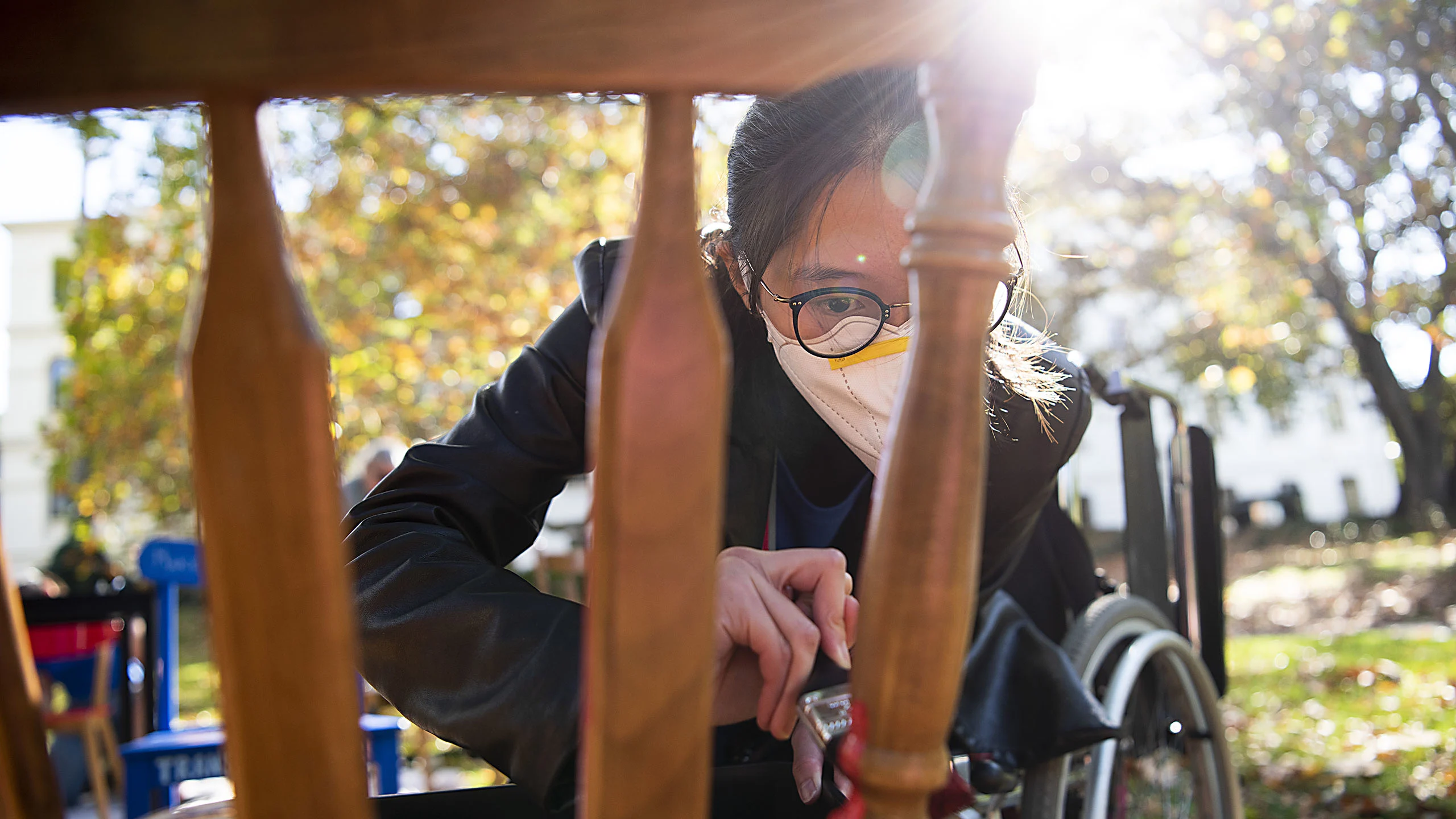
View or download our full 2022 Annual Impact Report
